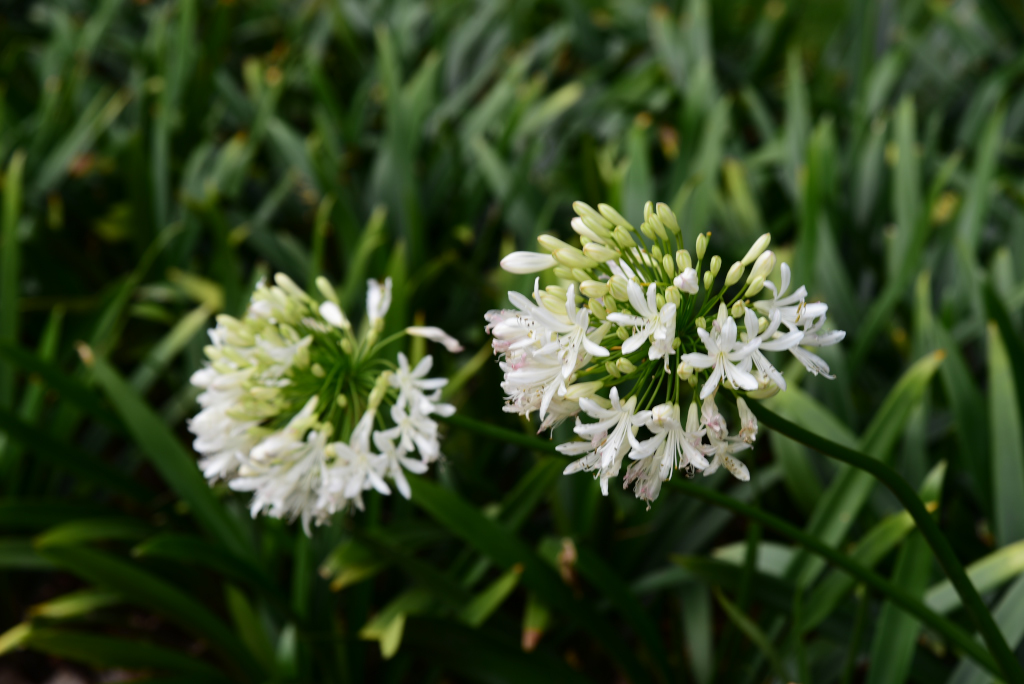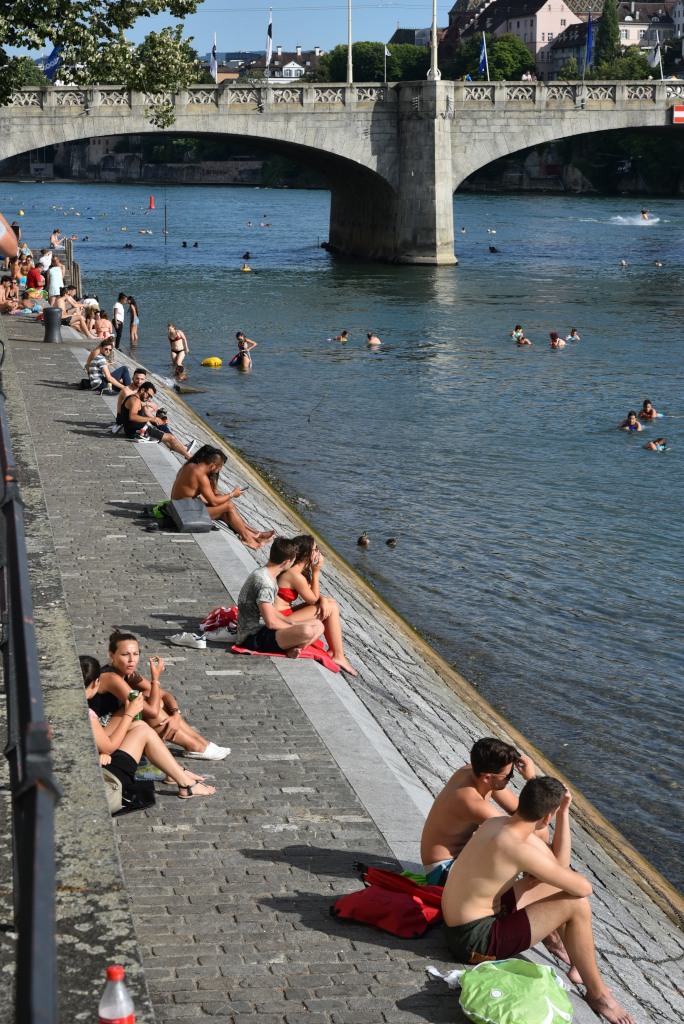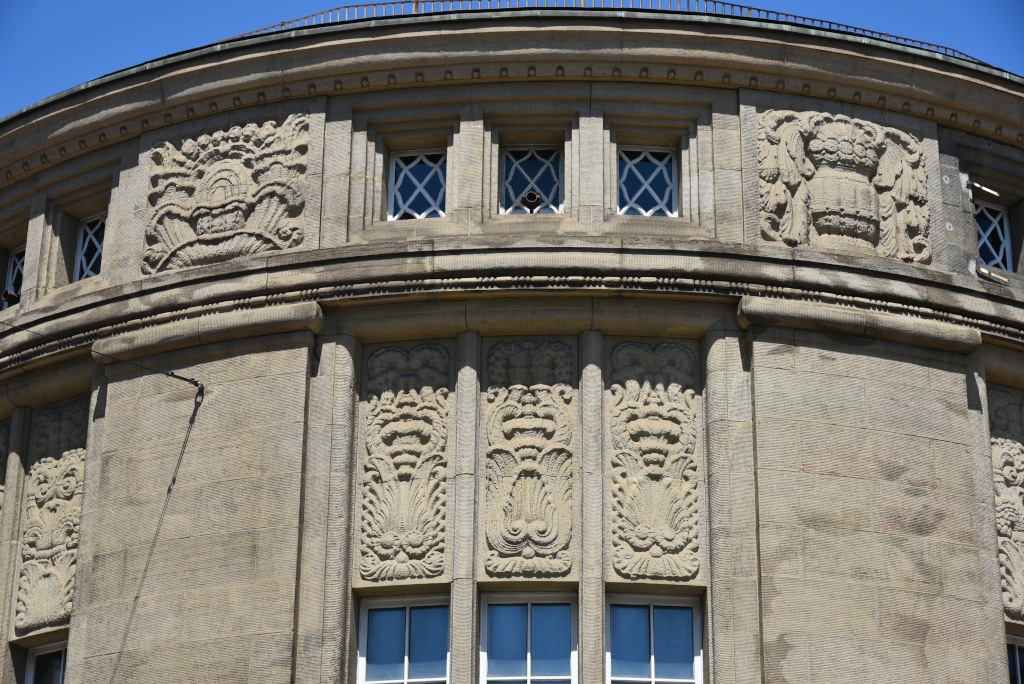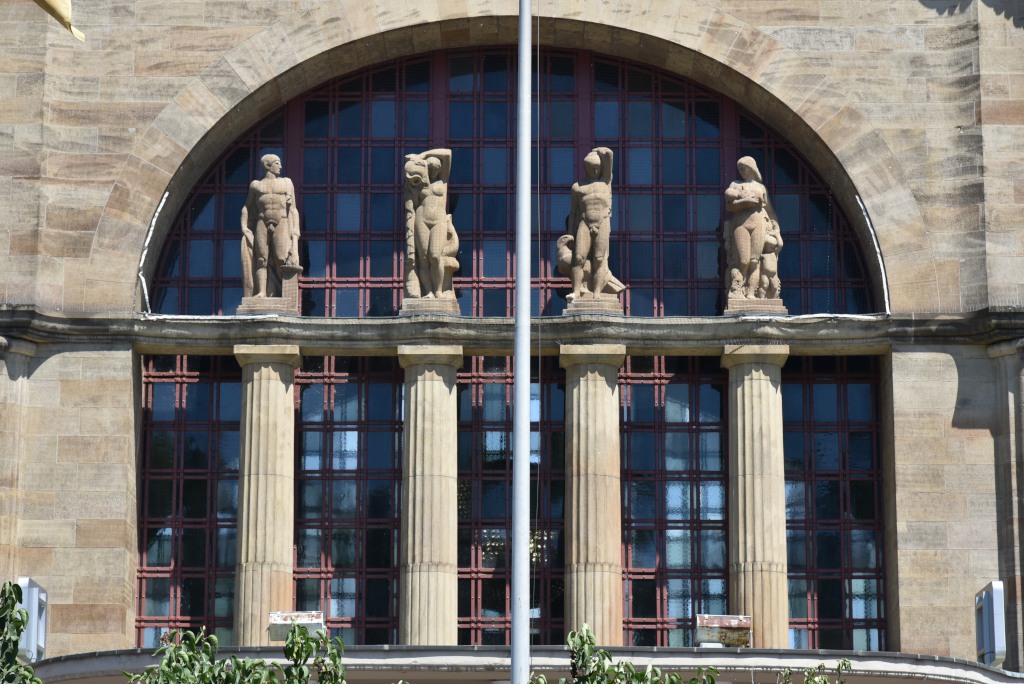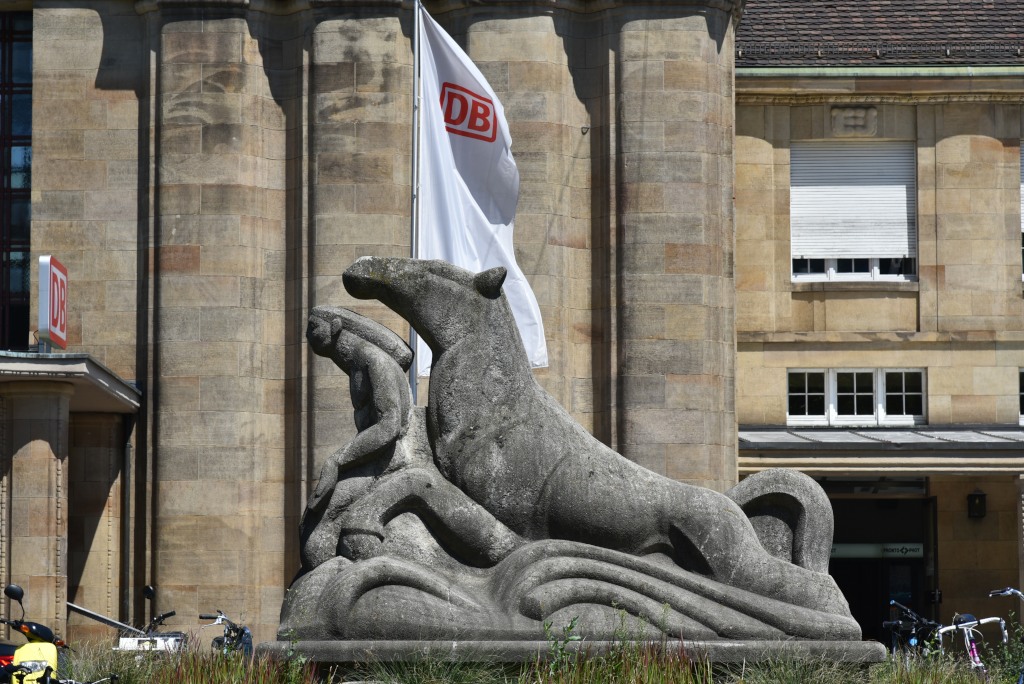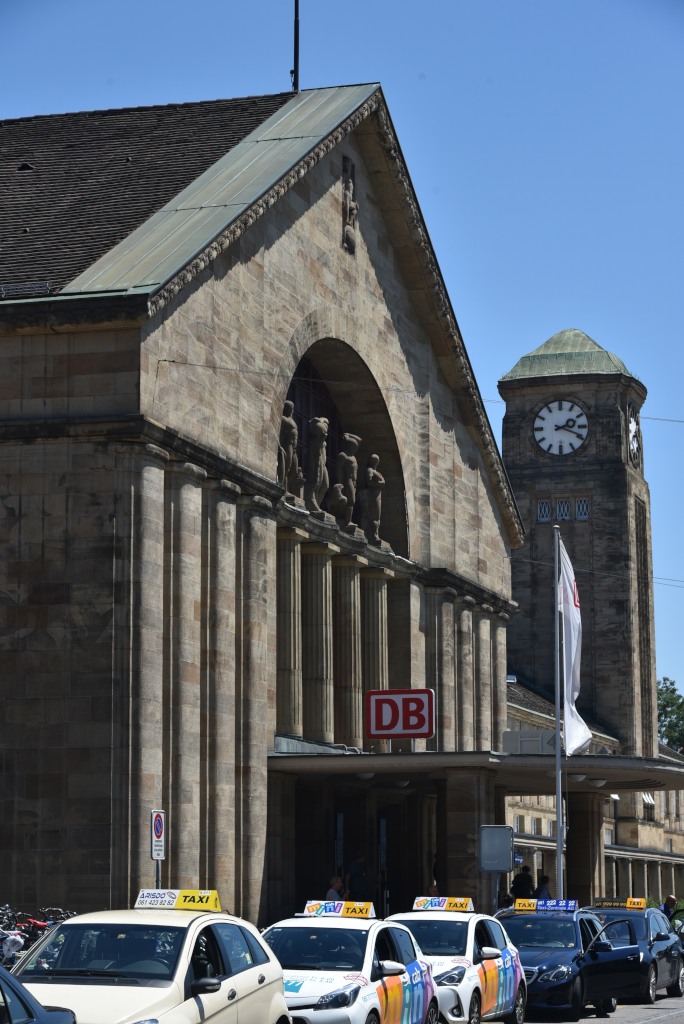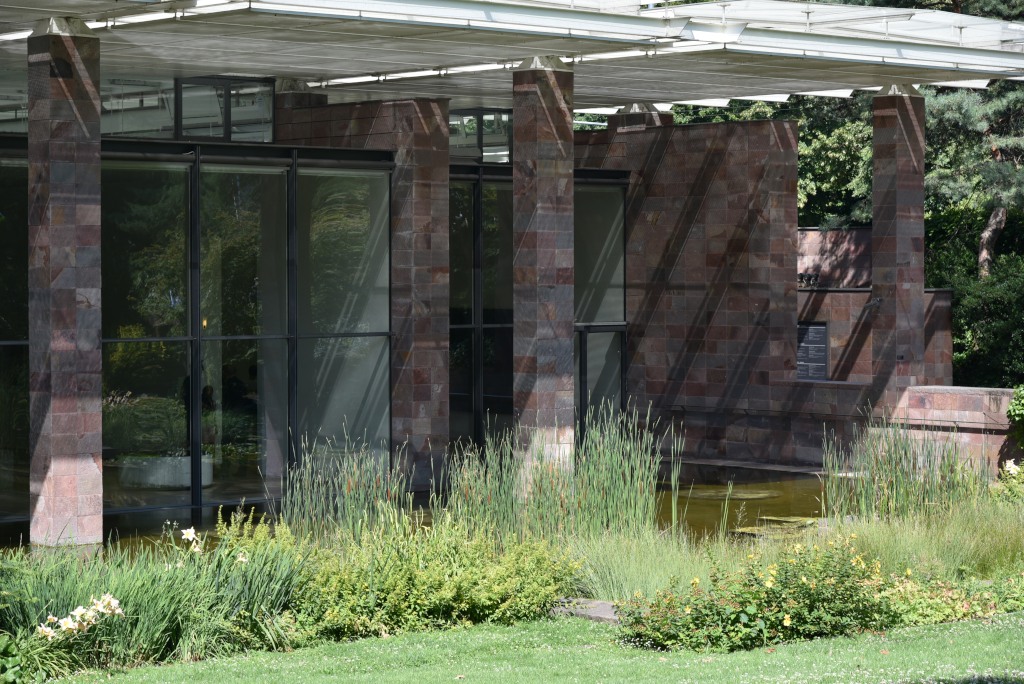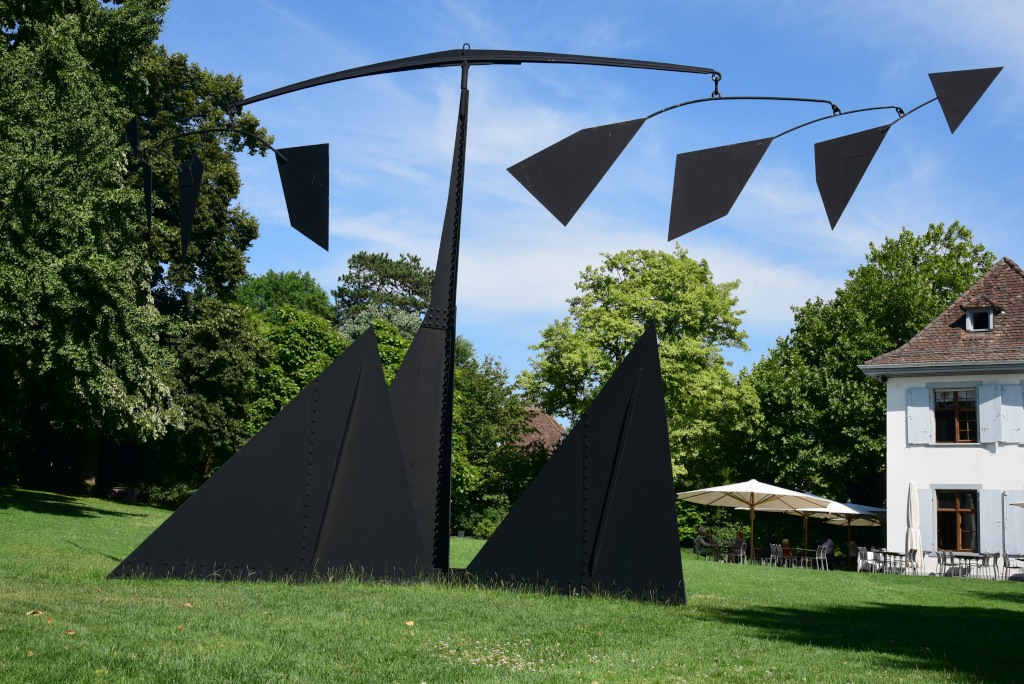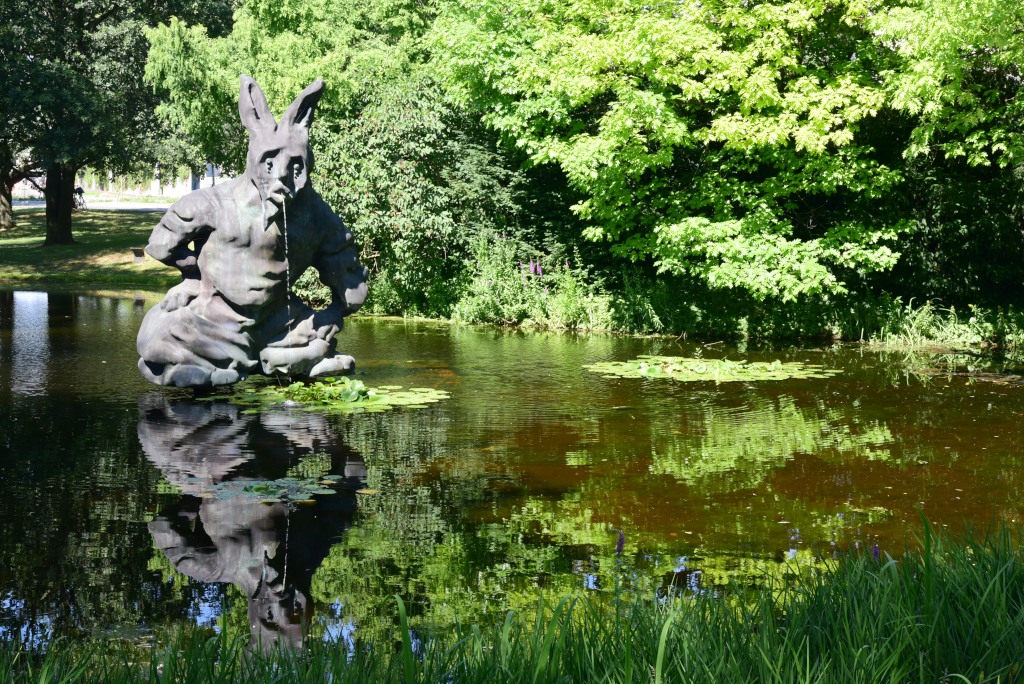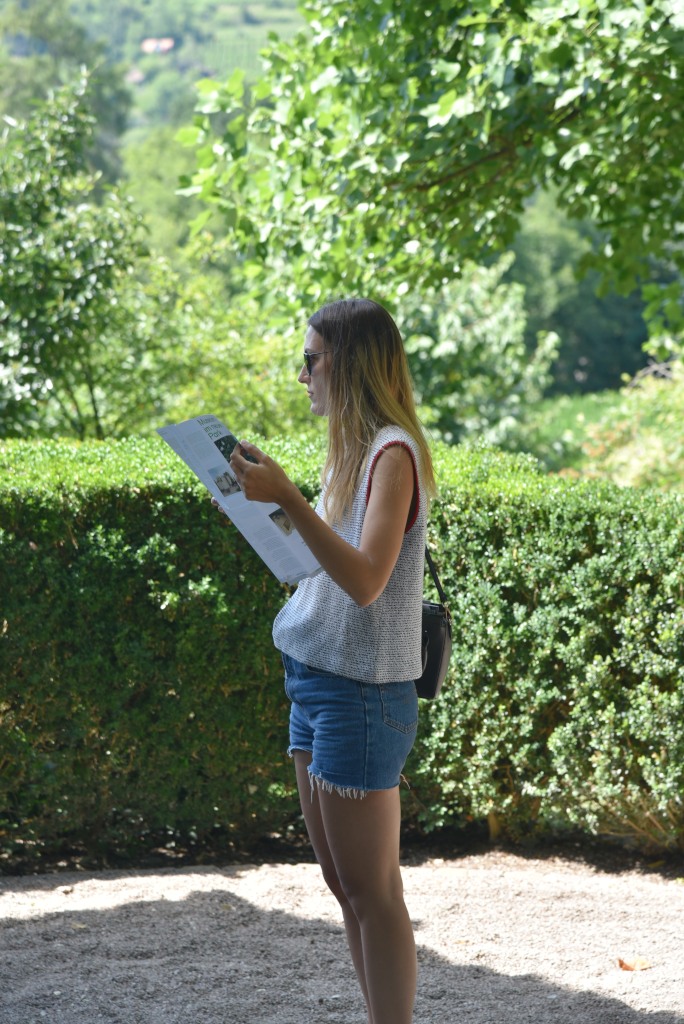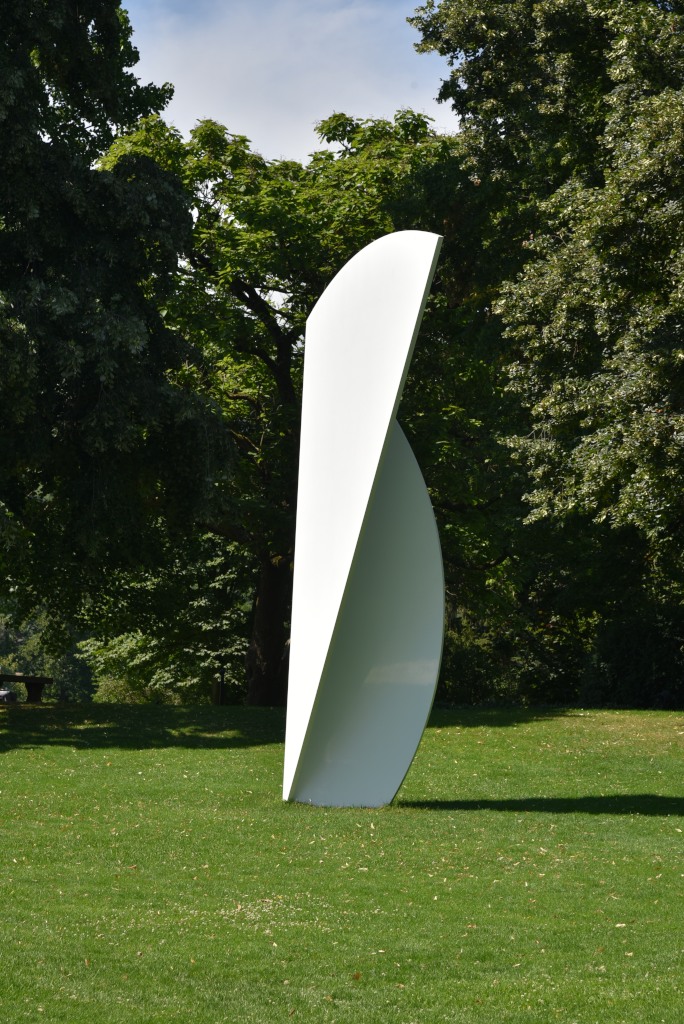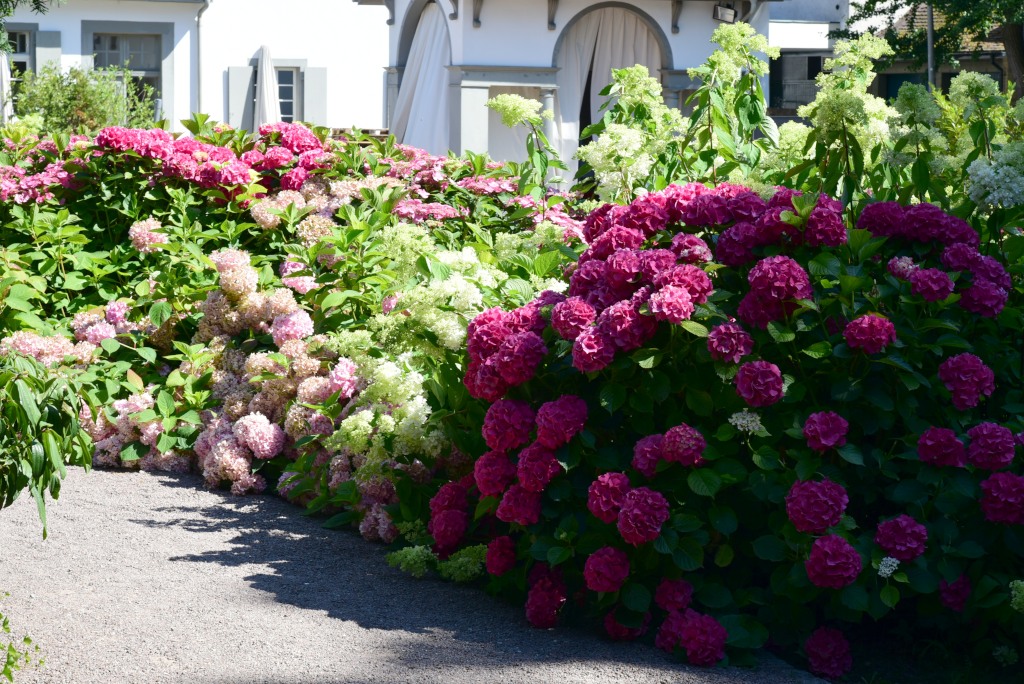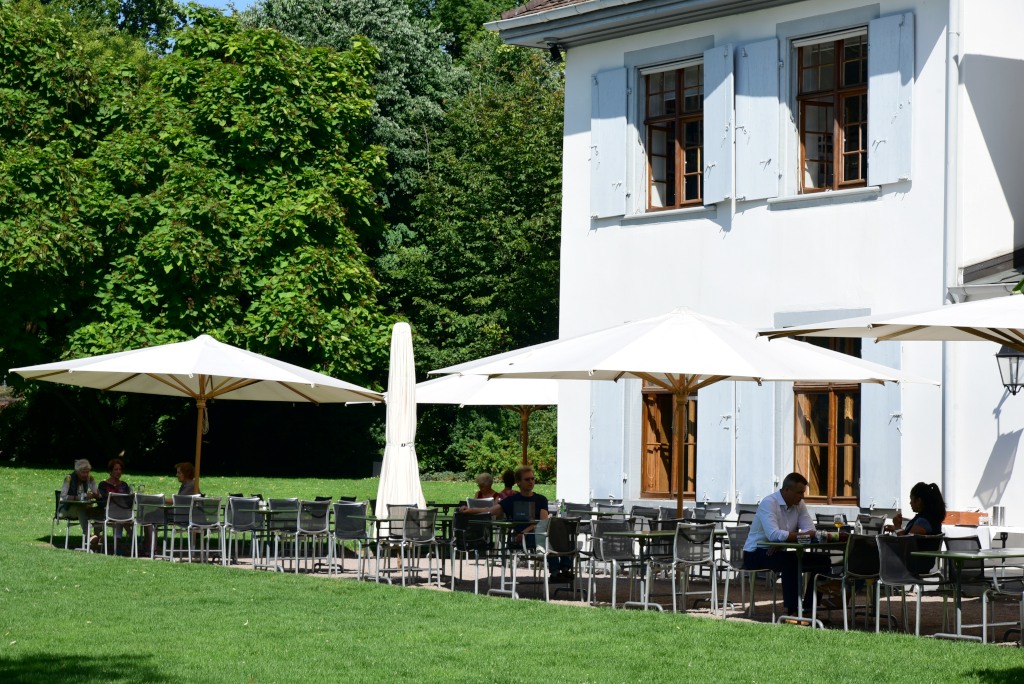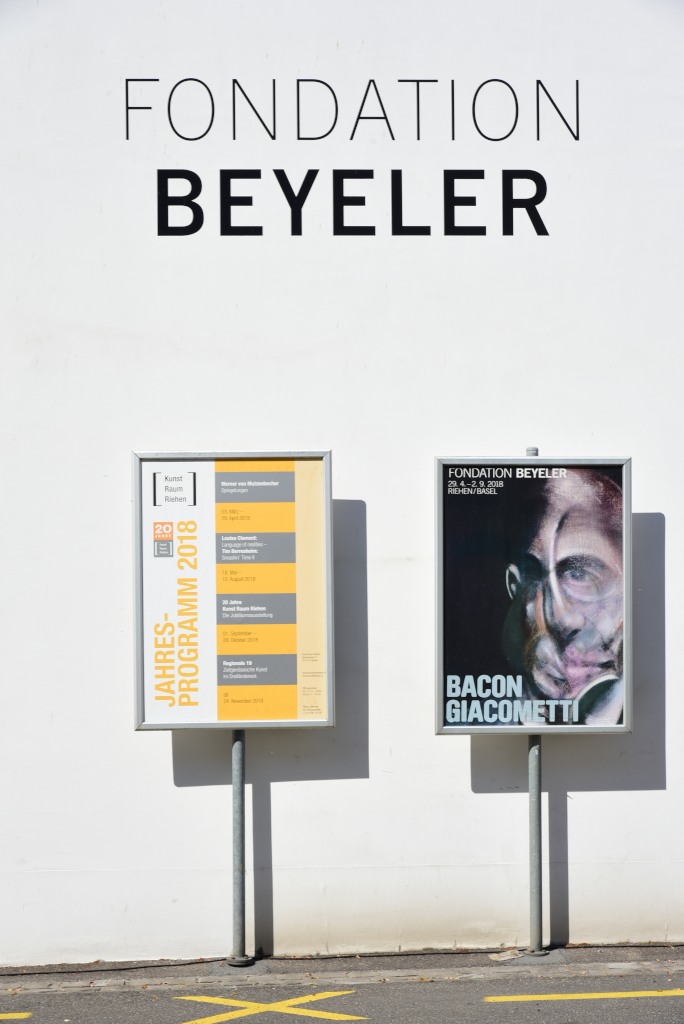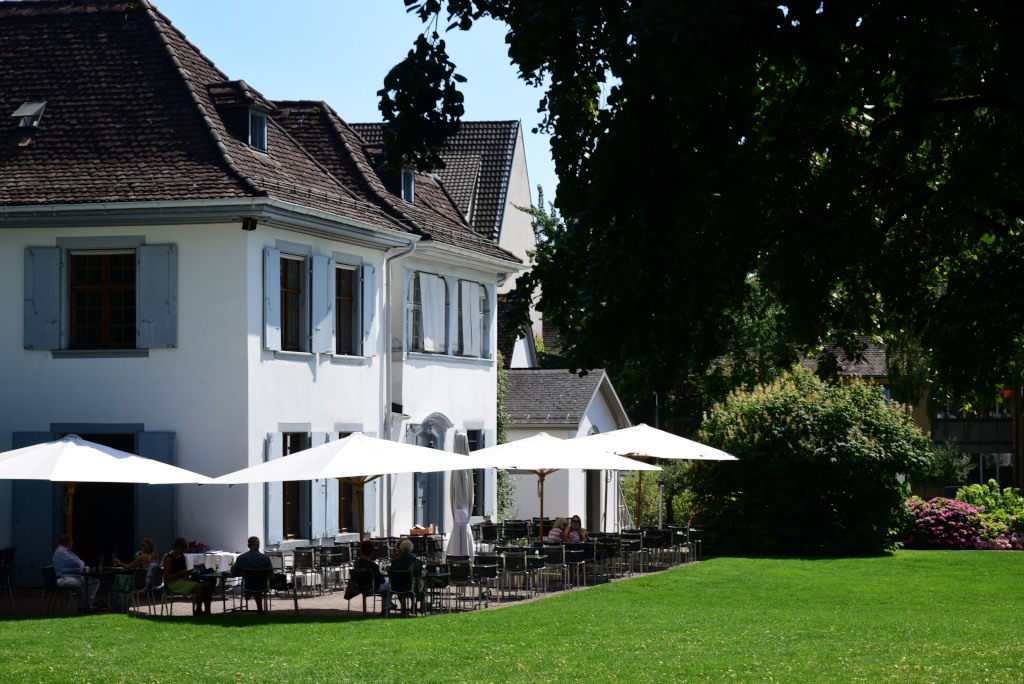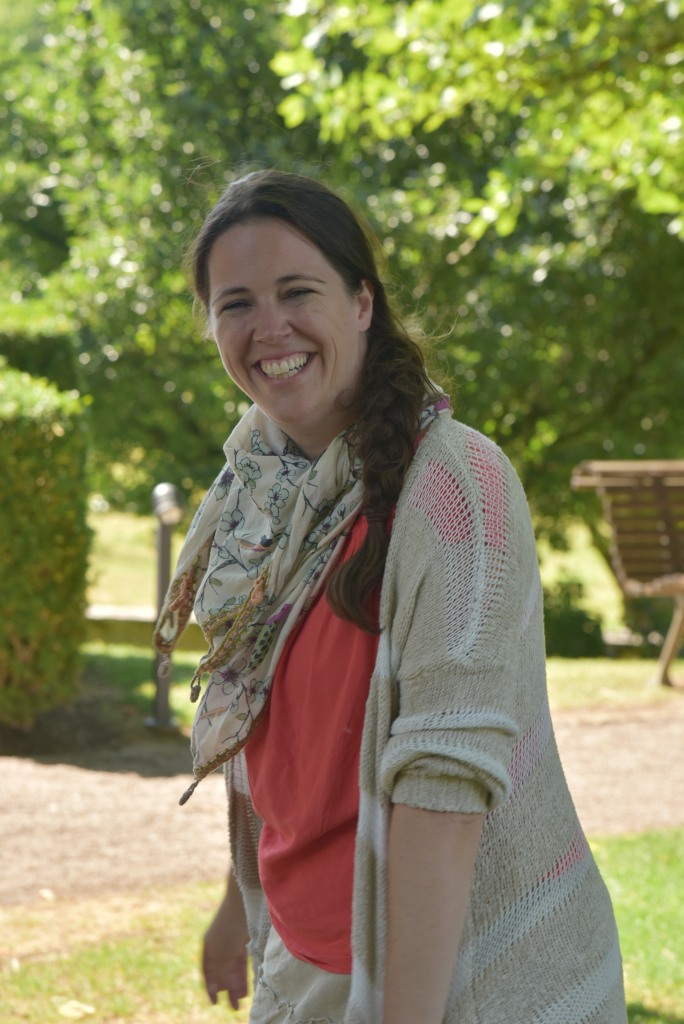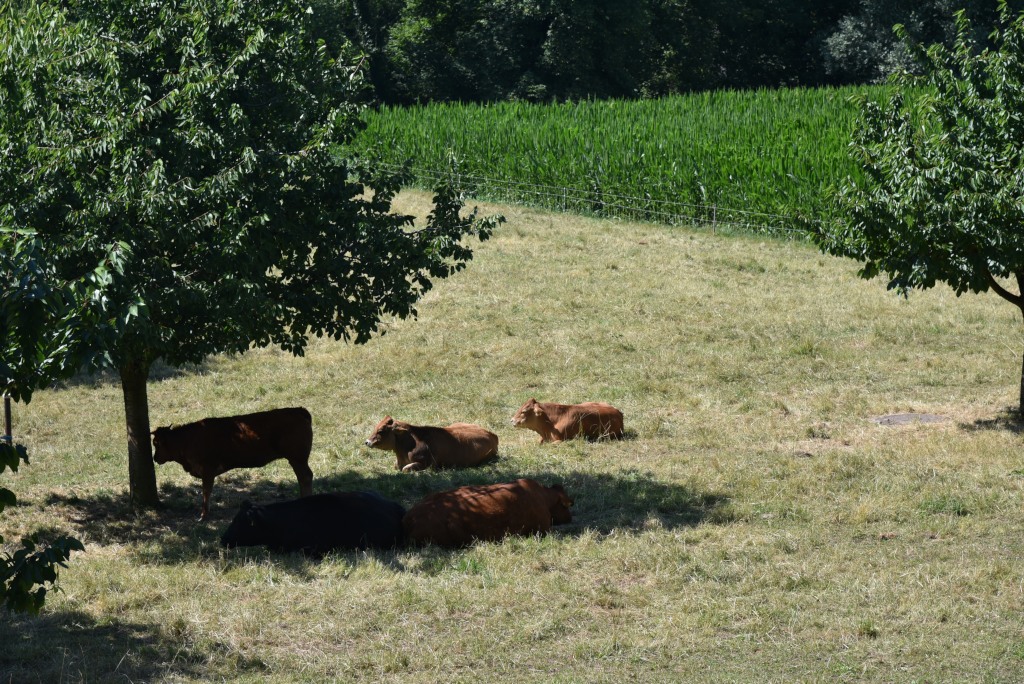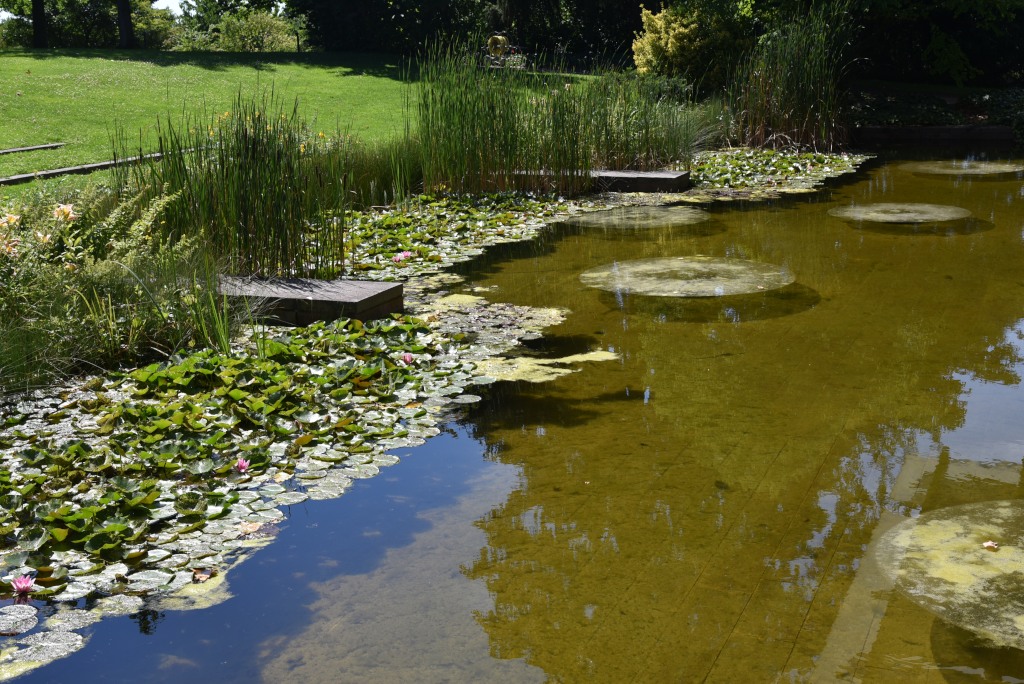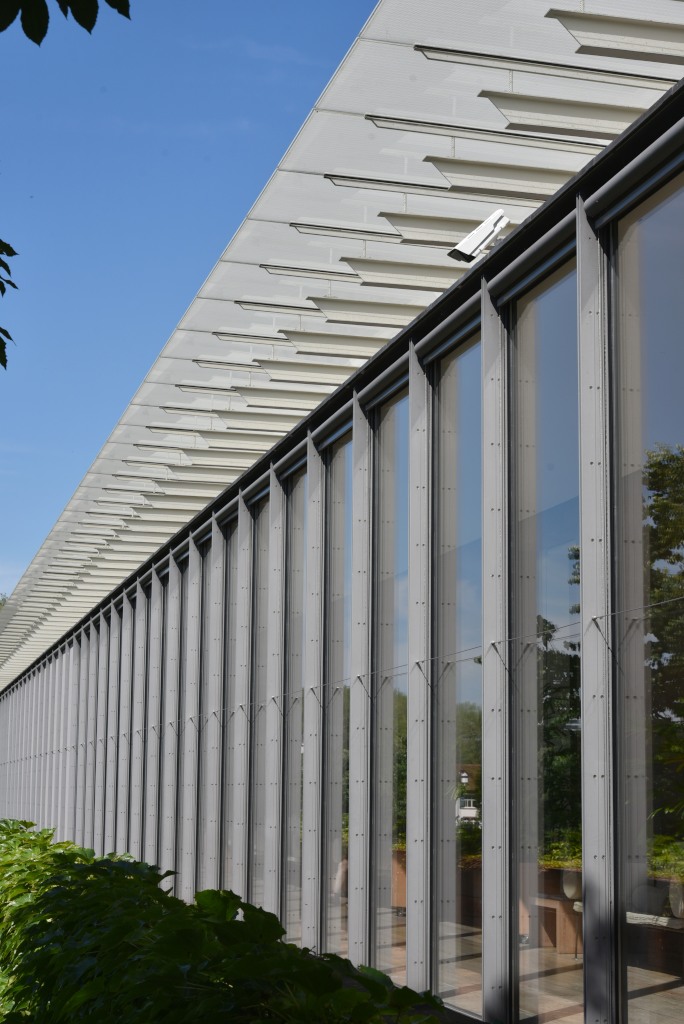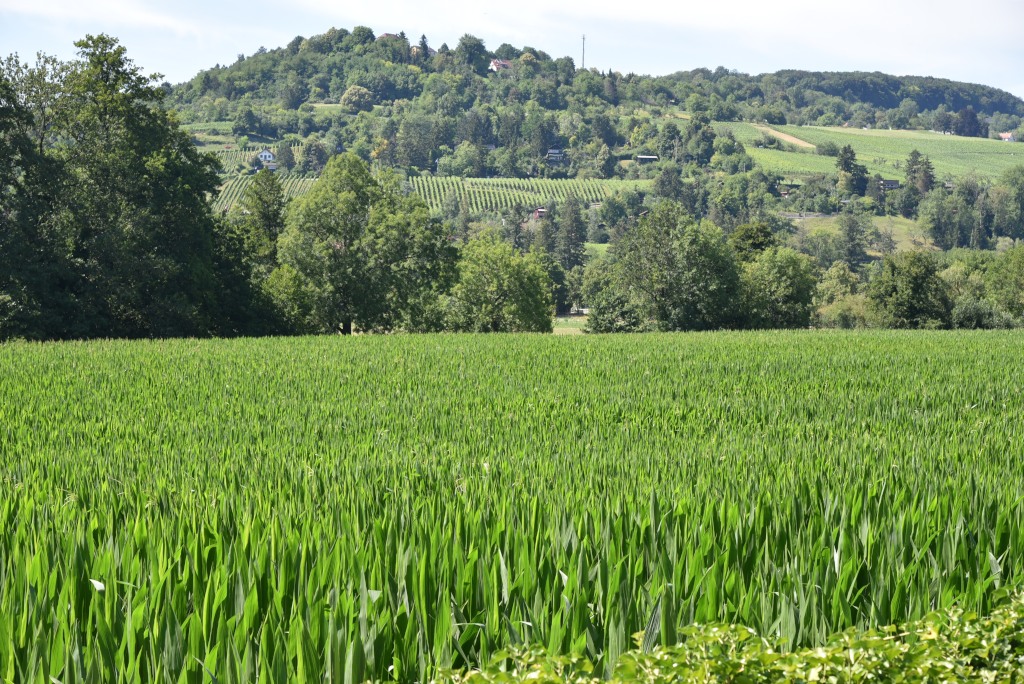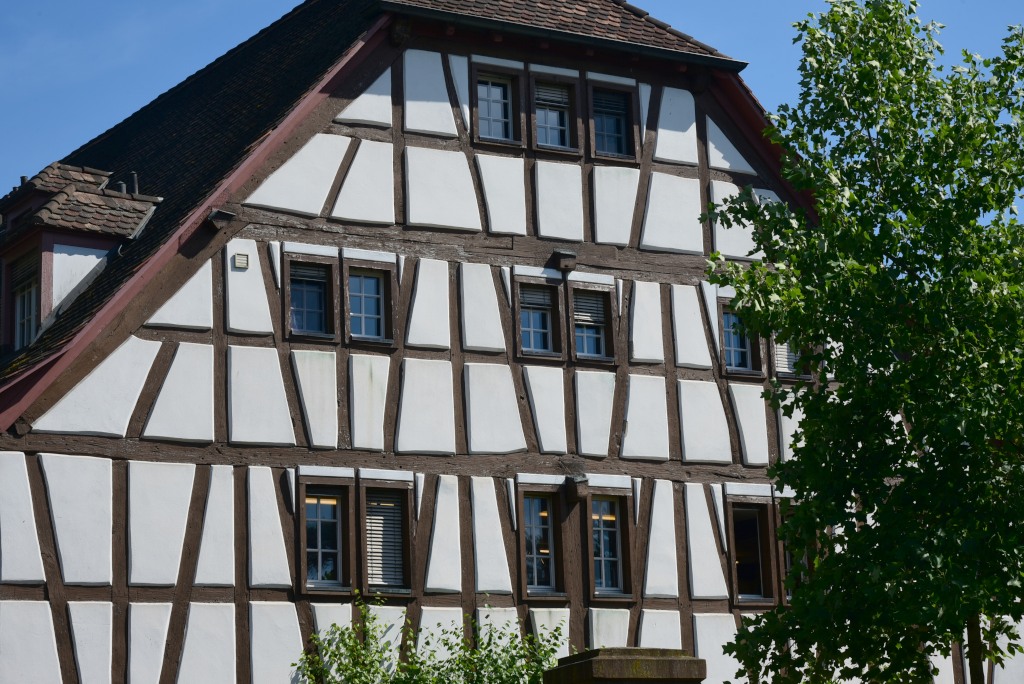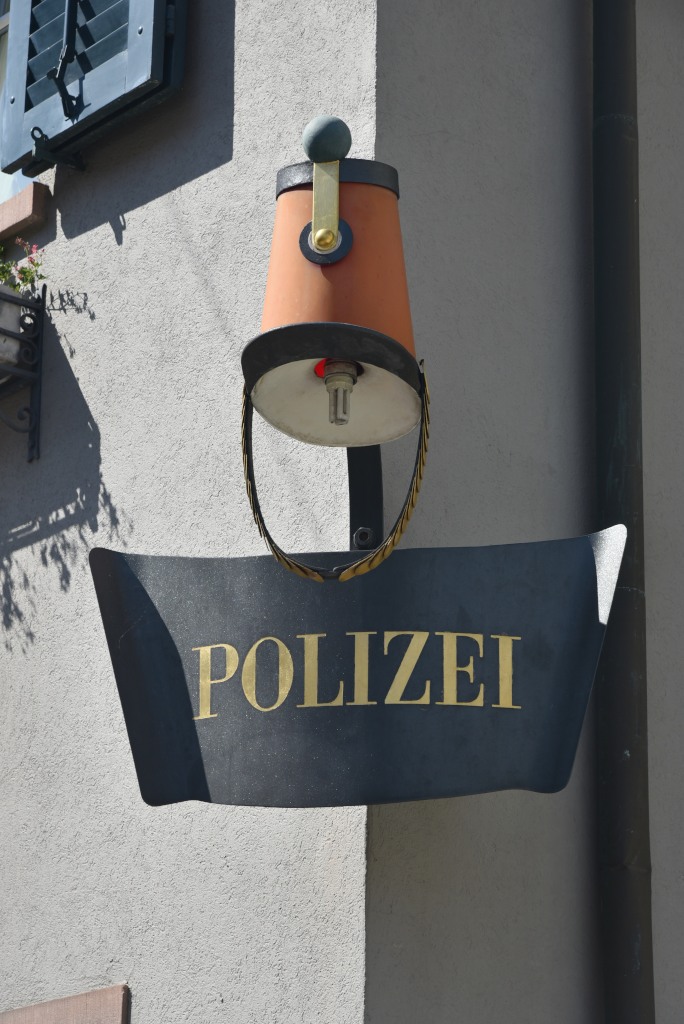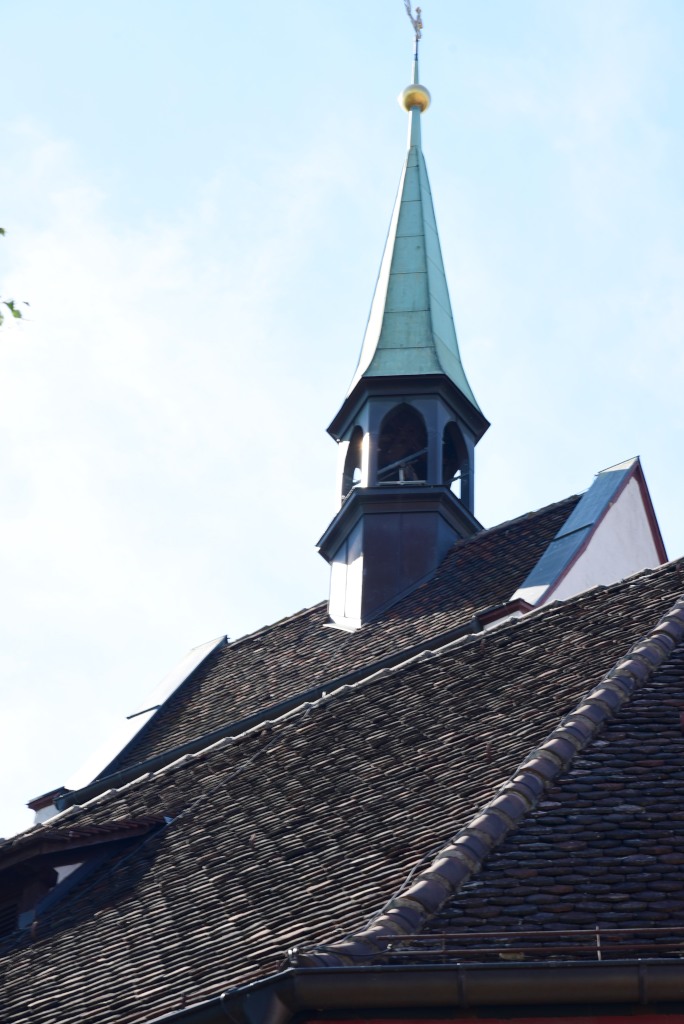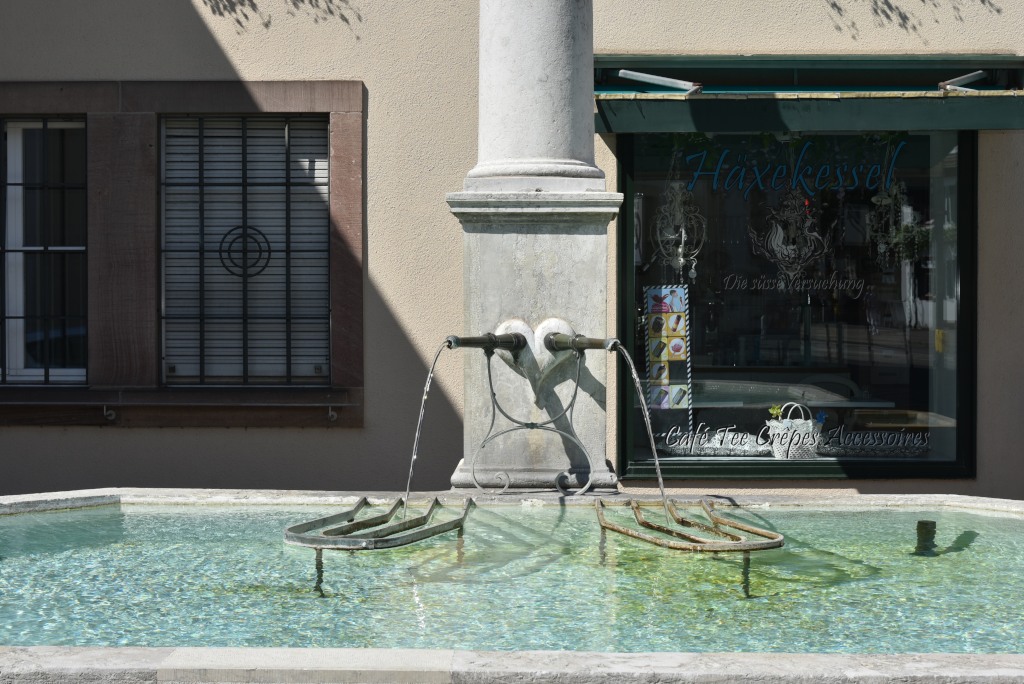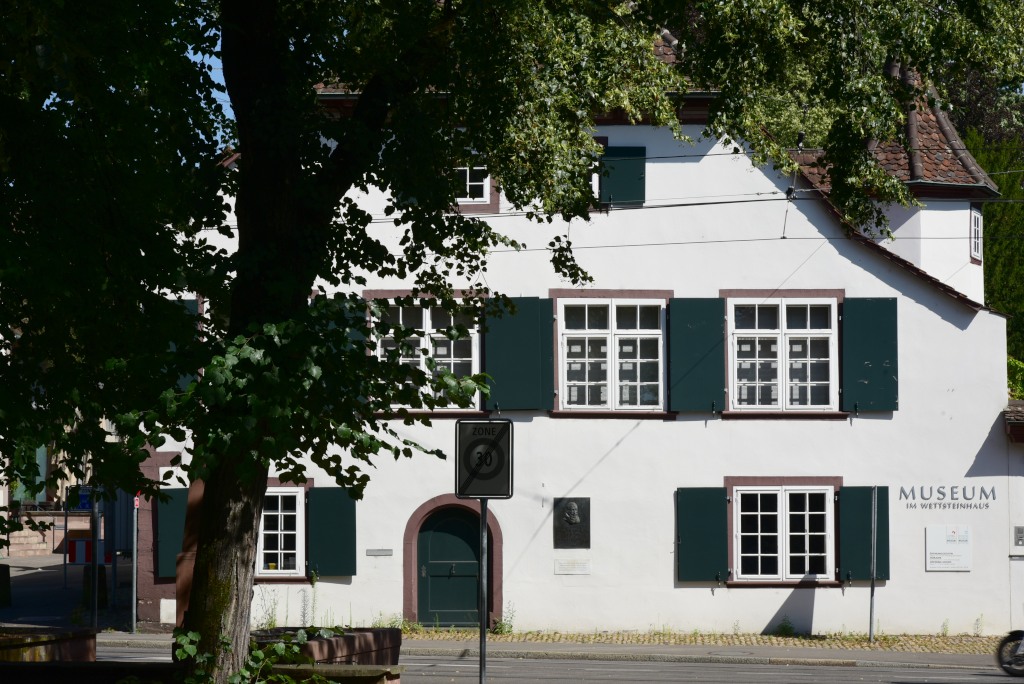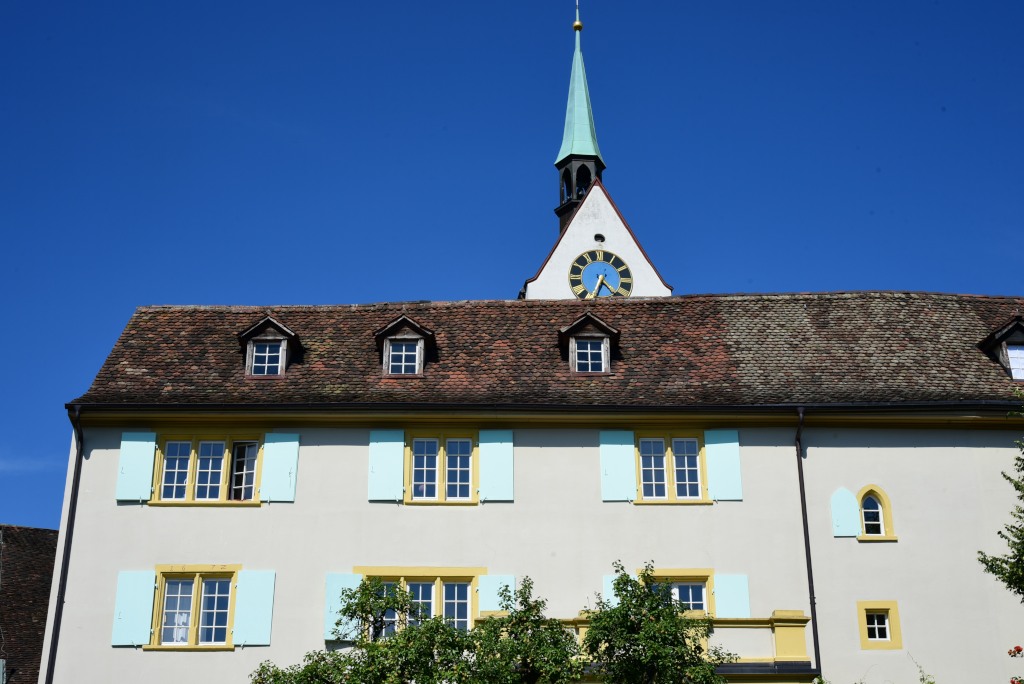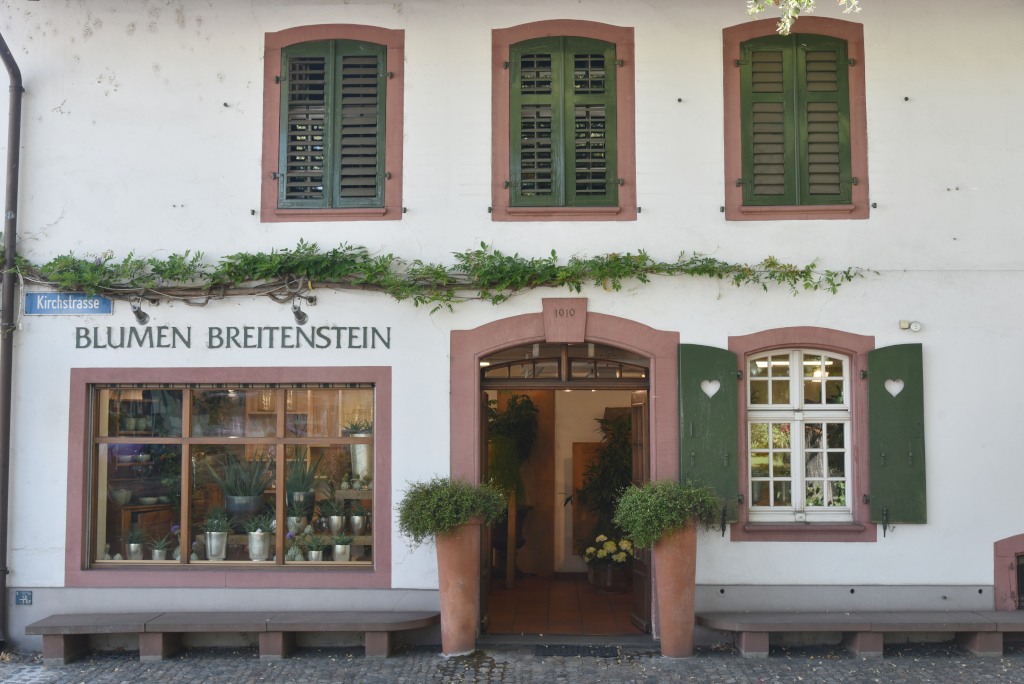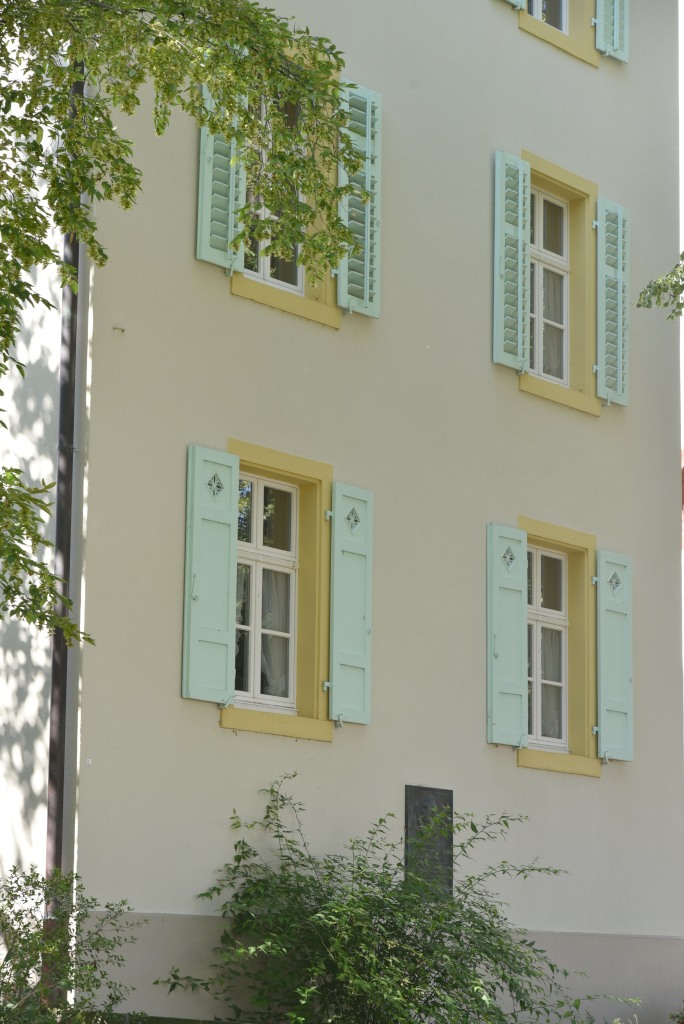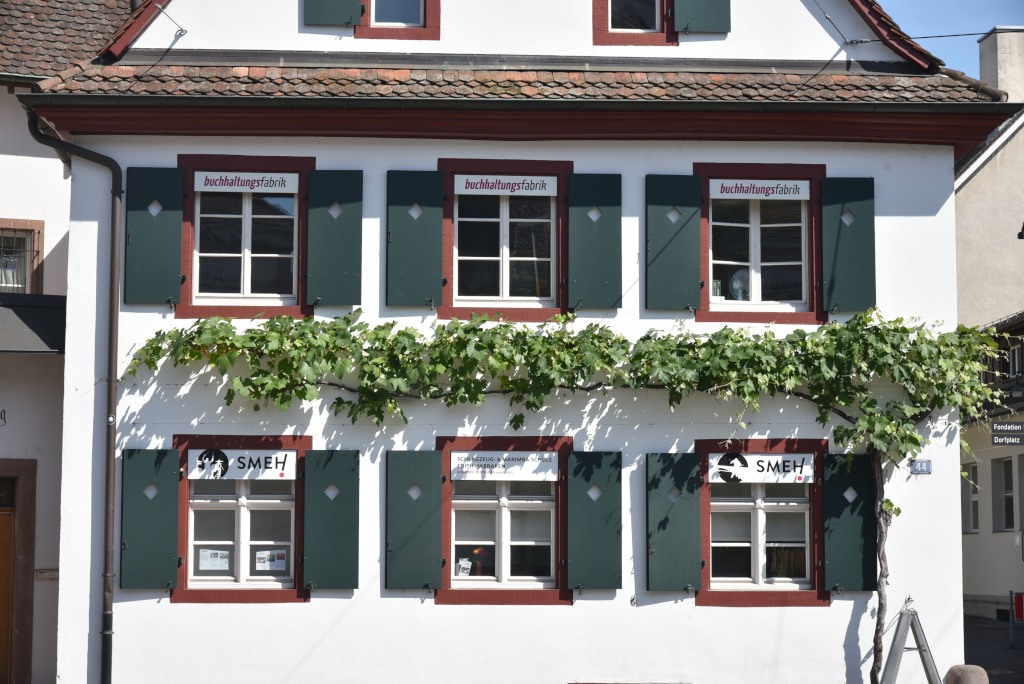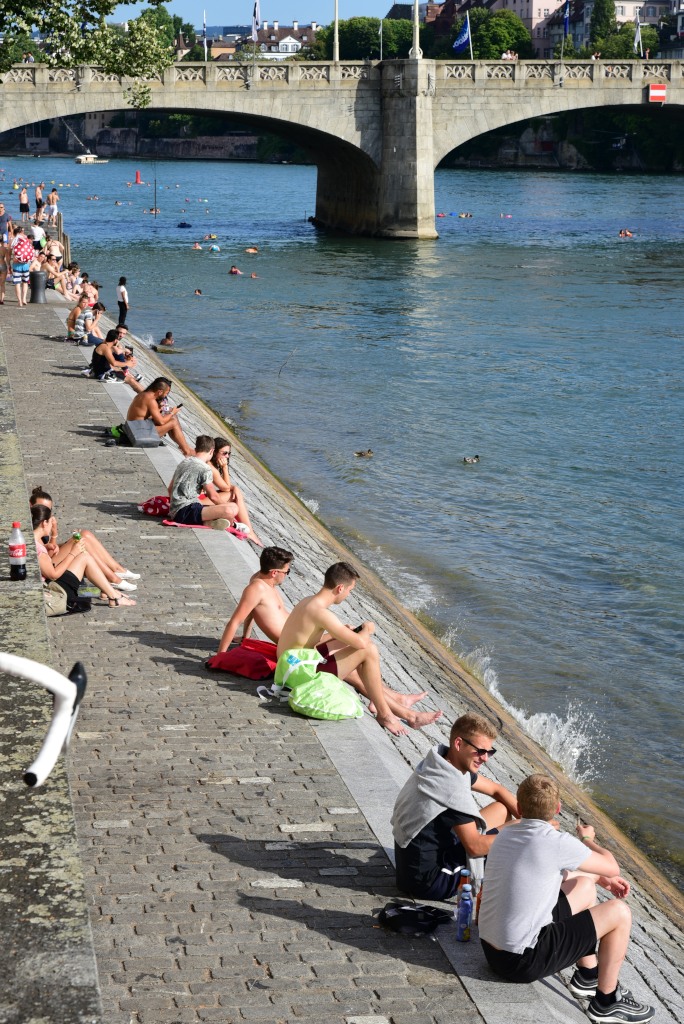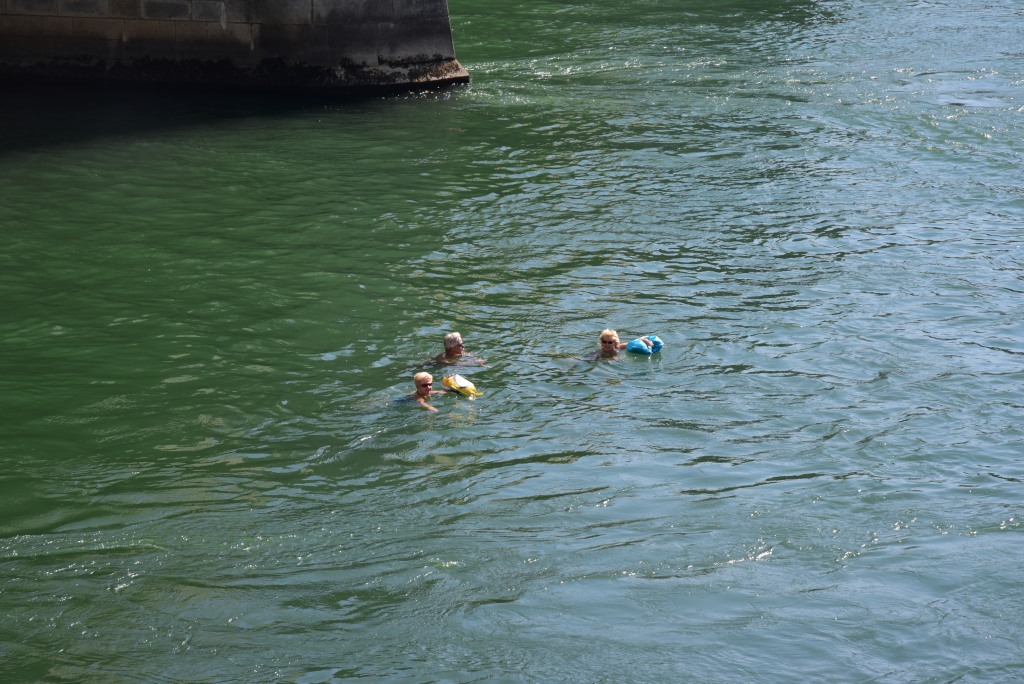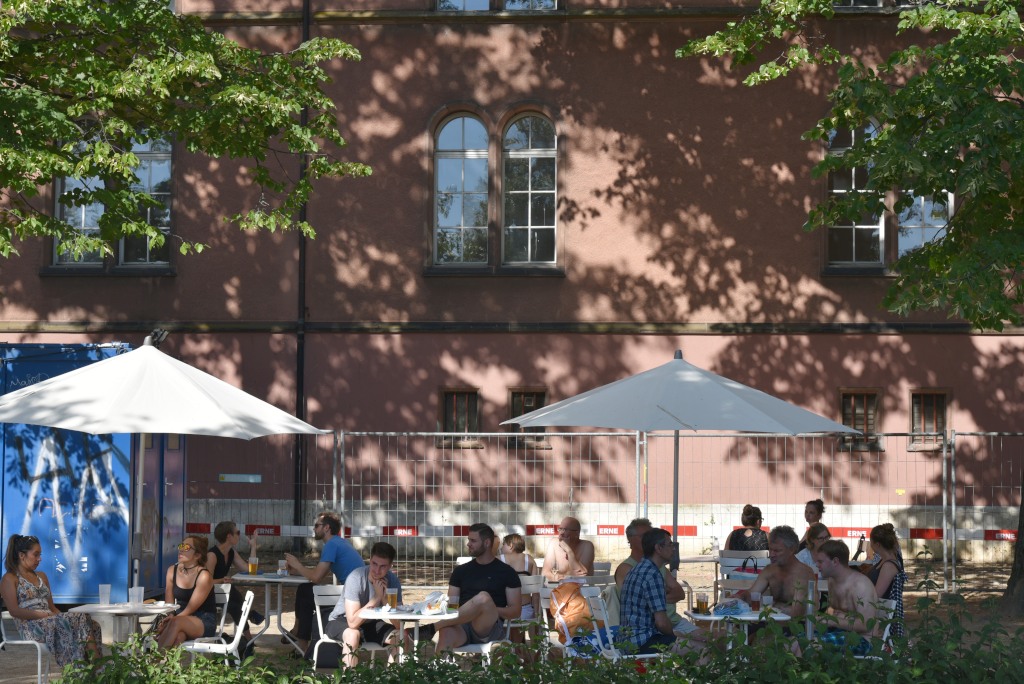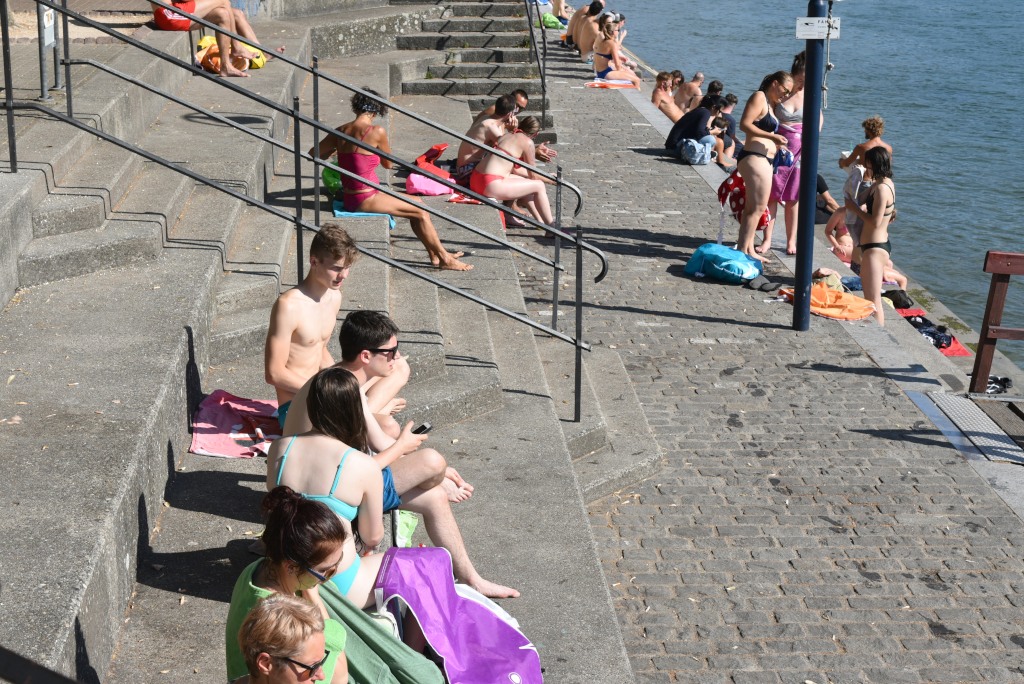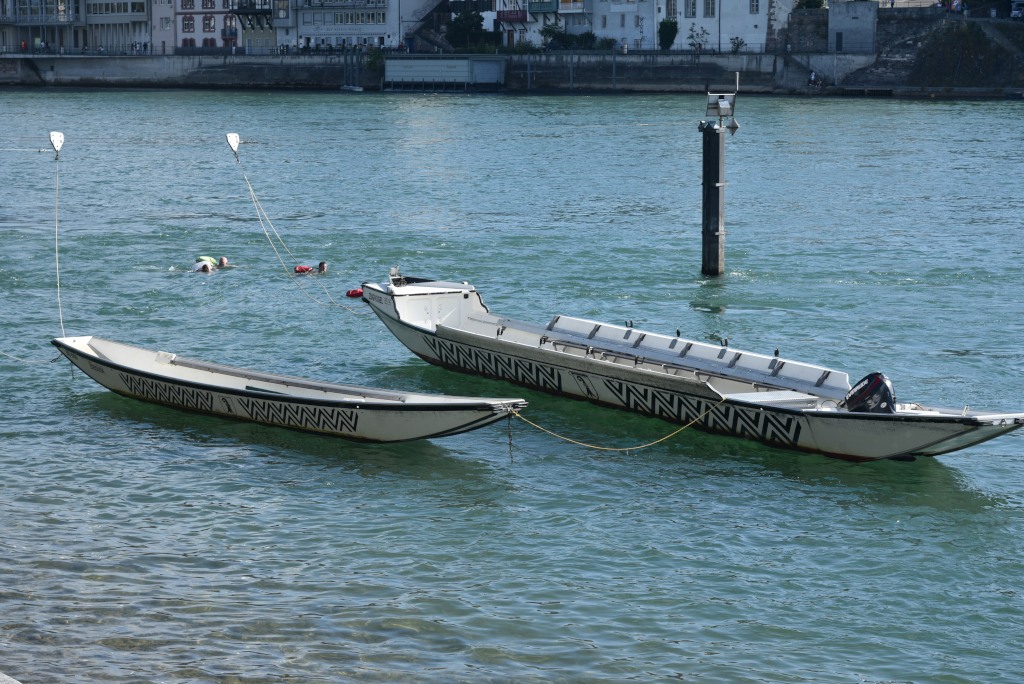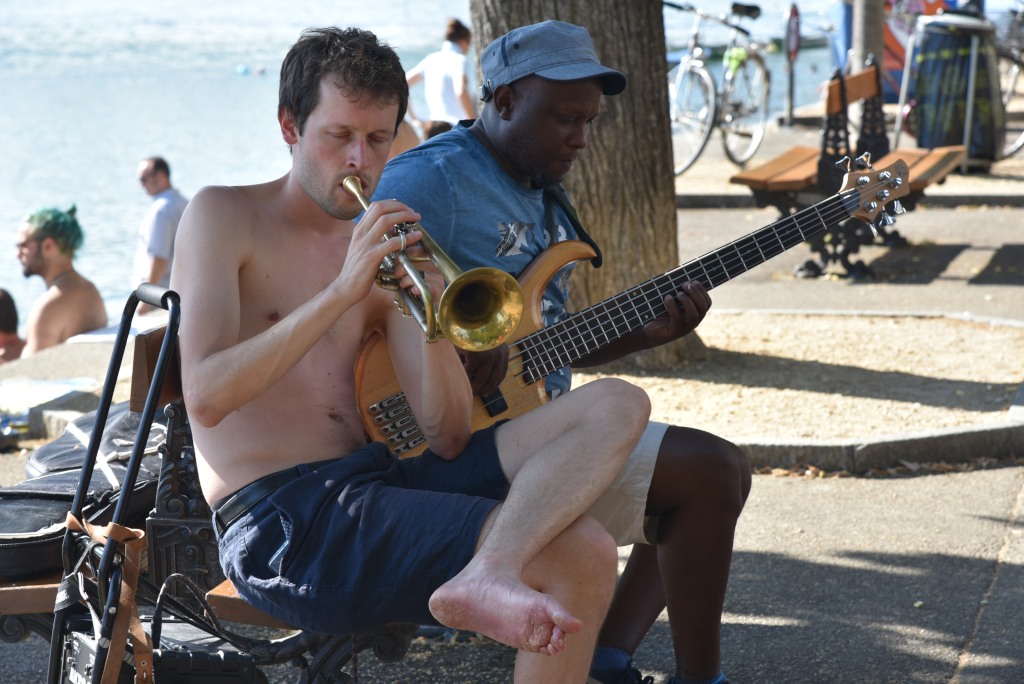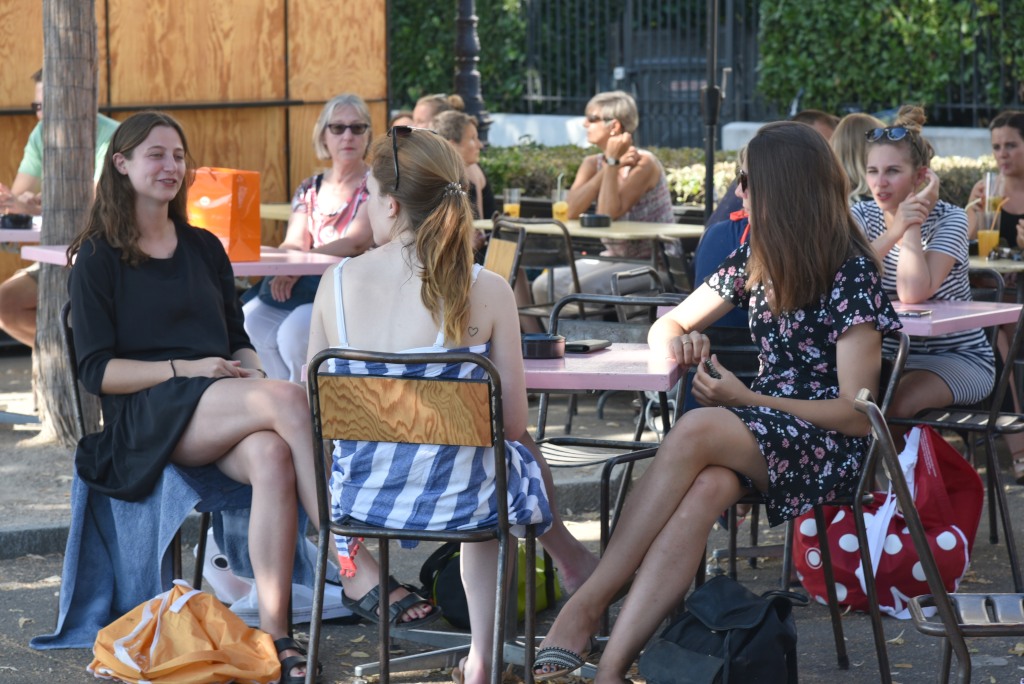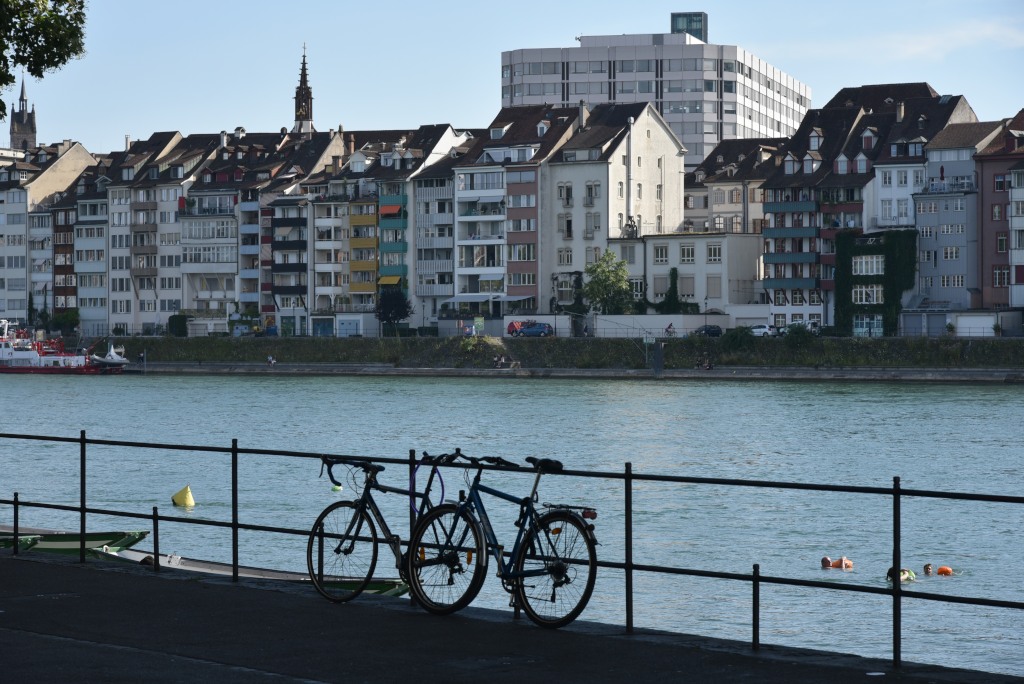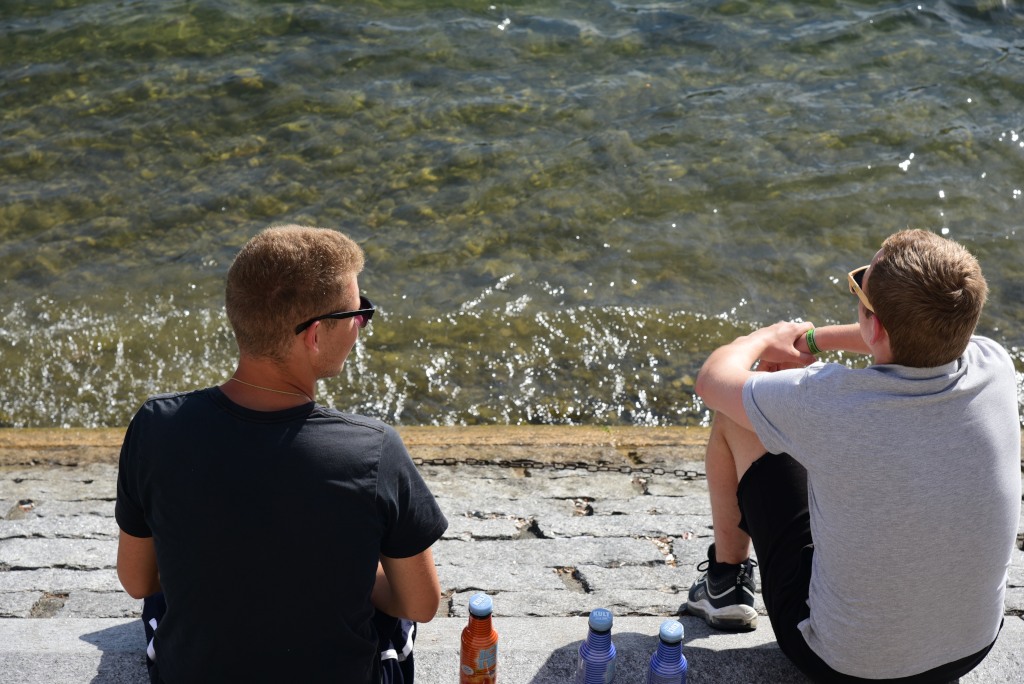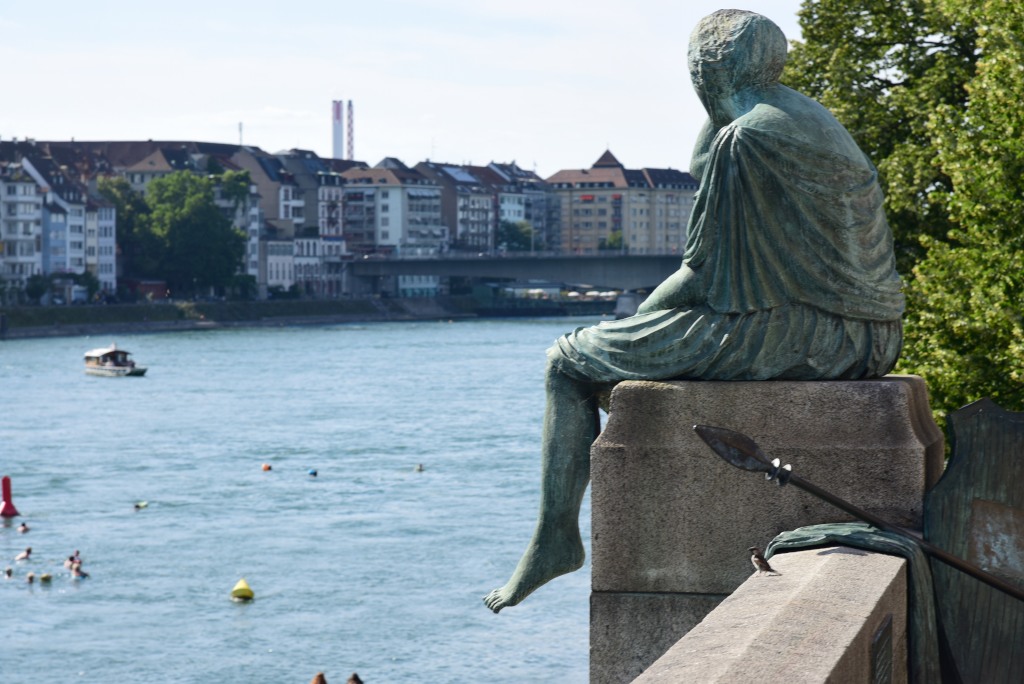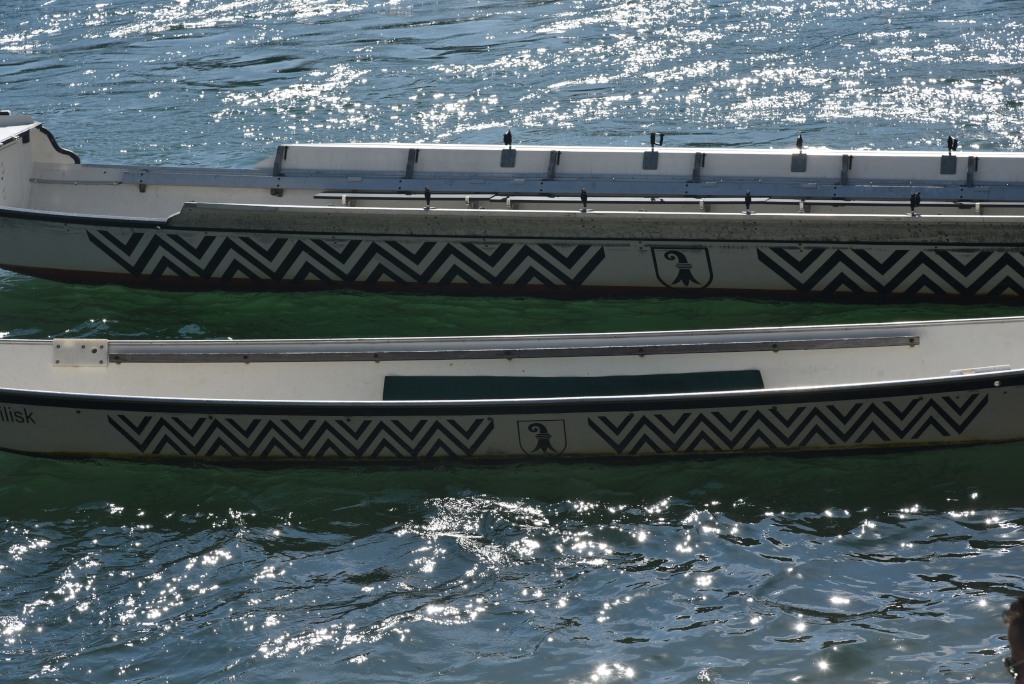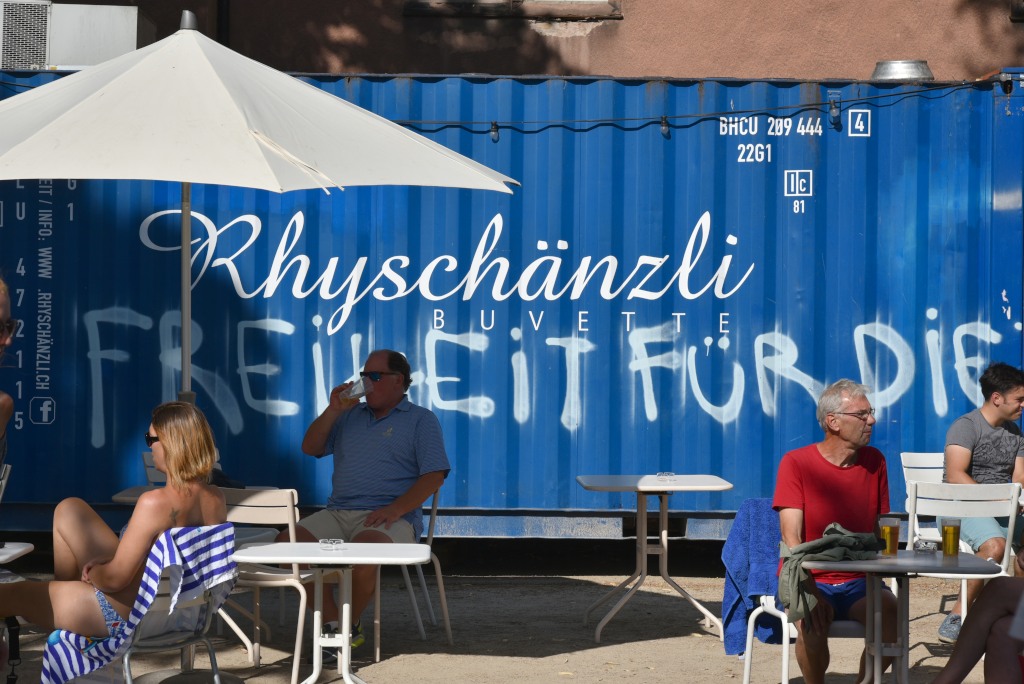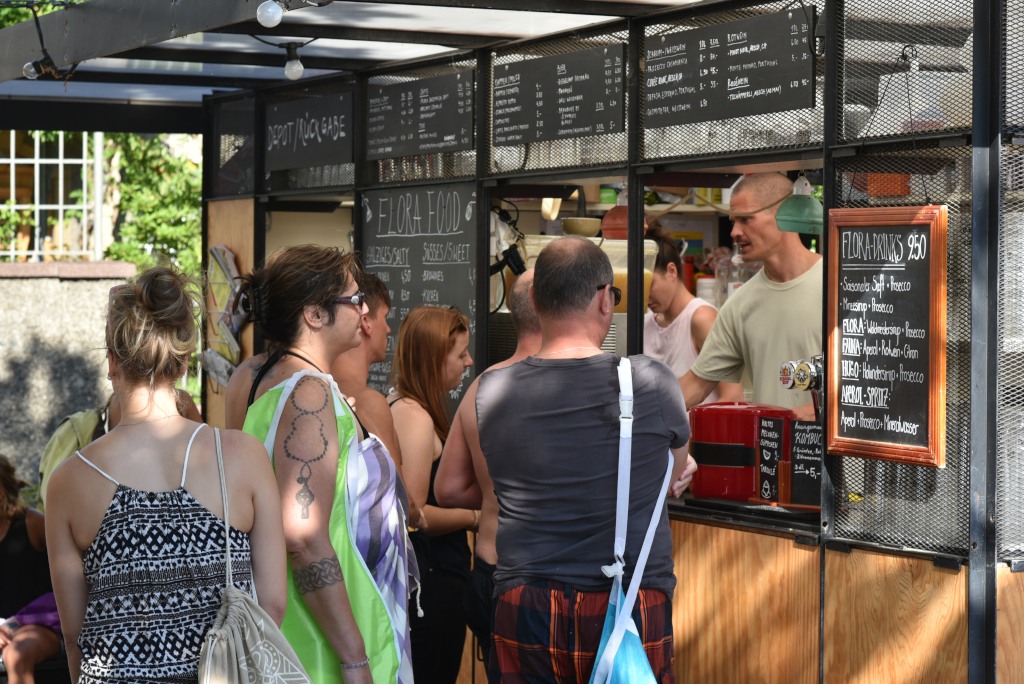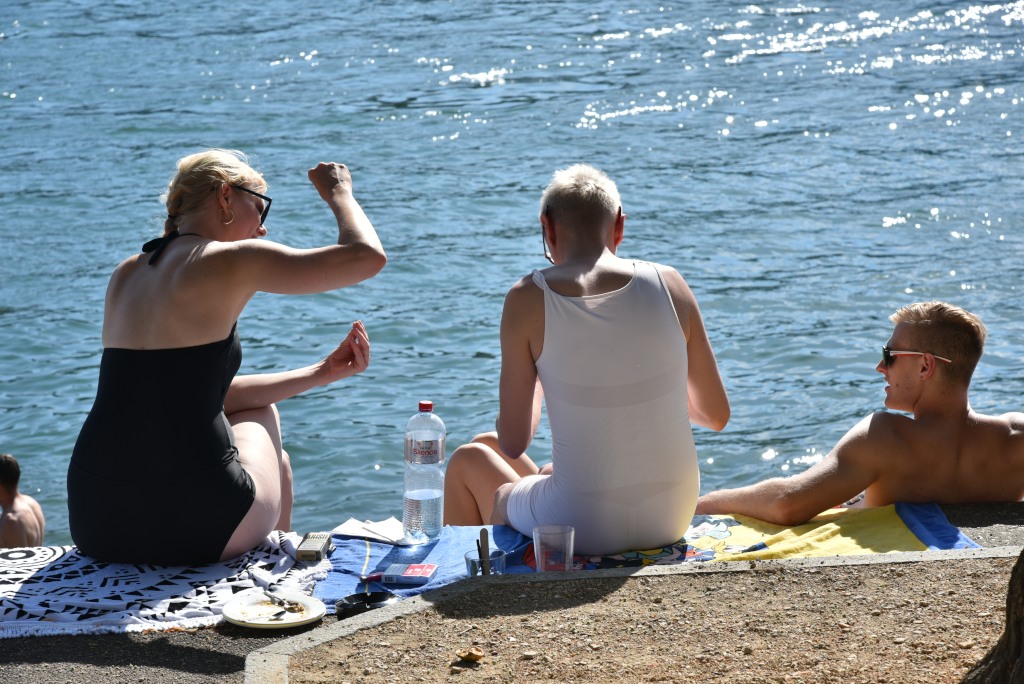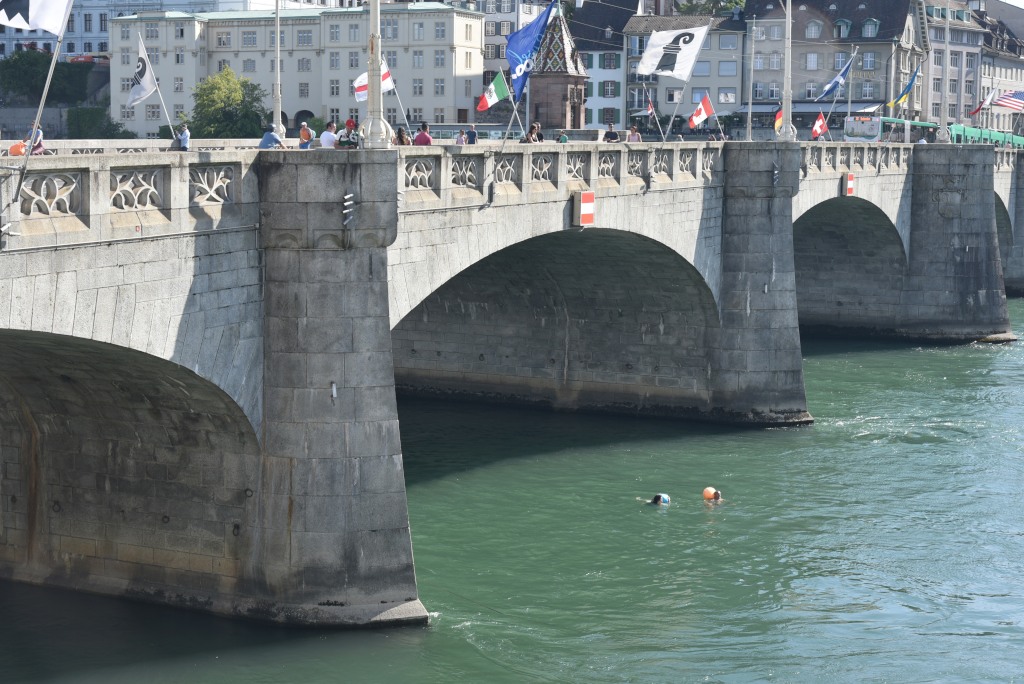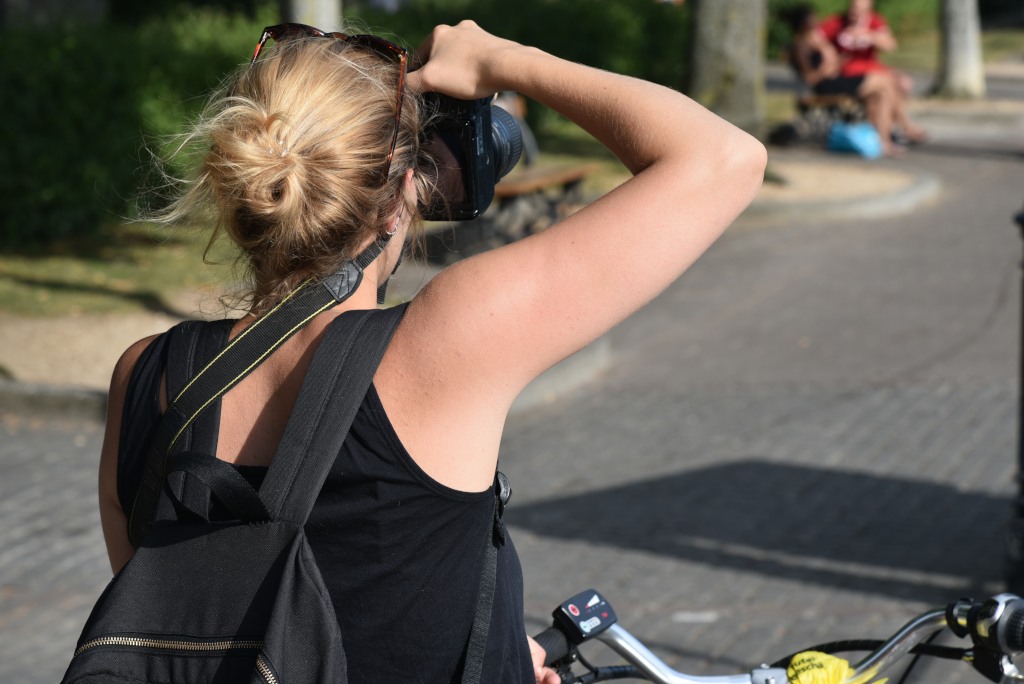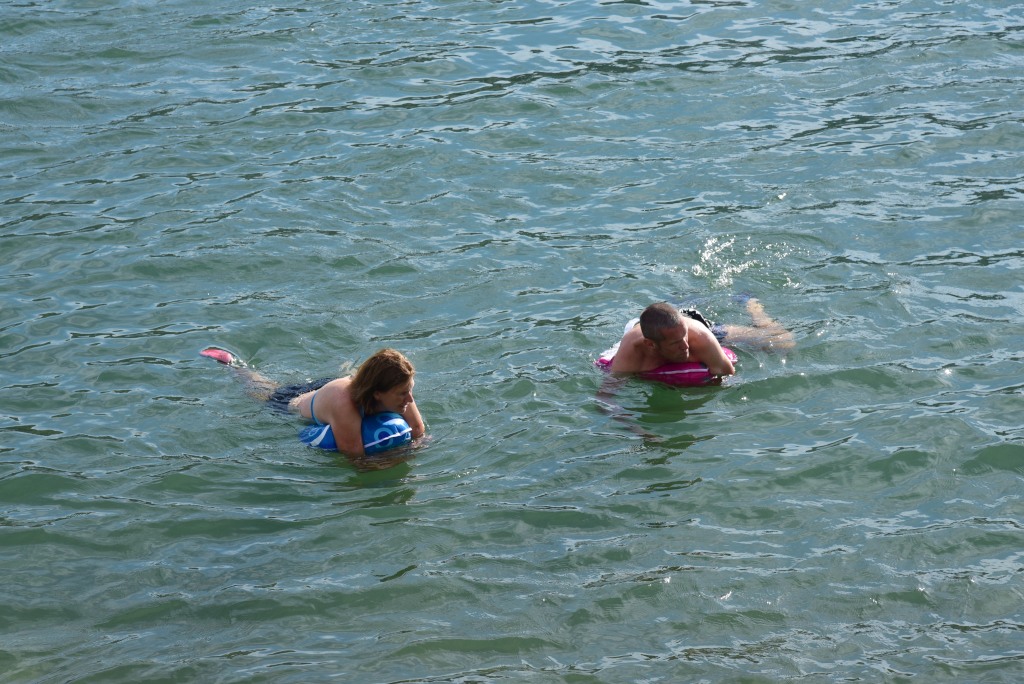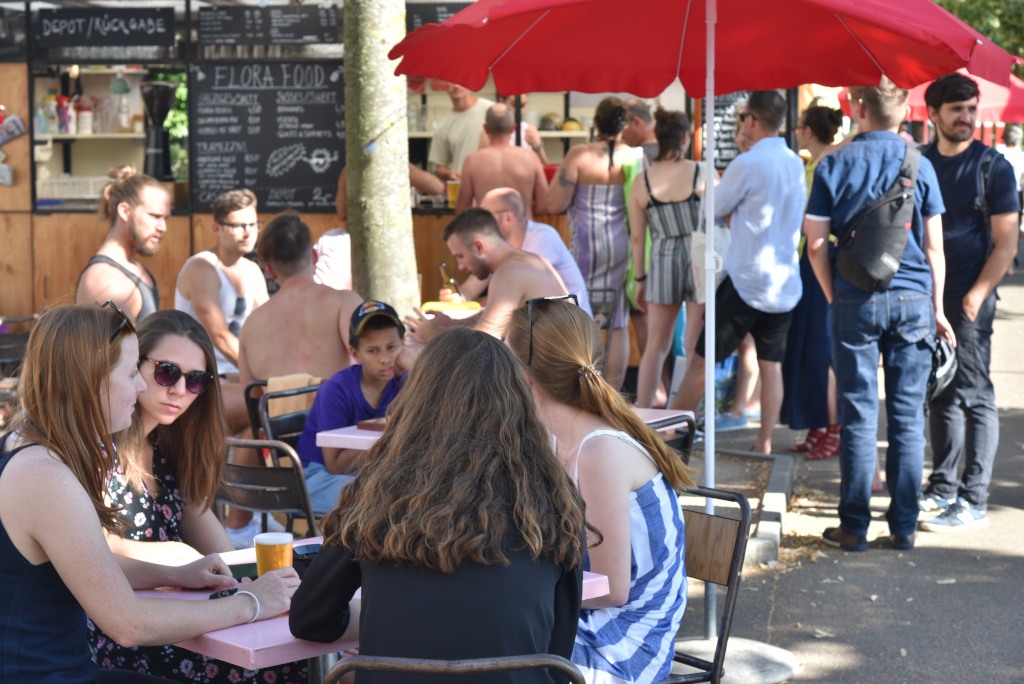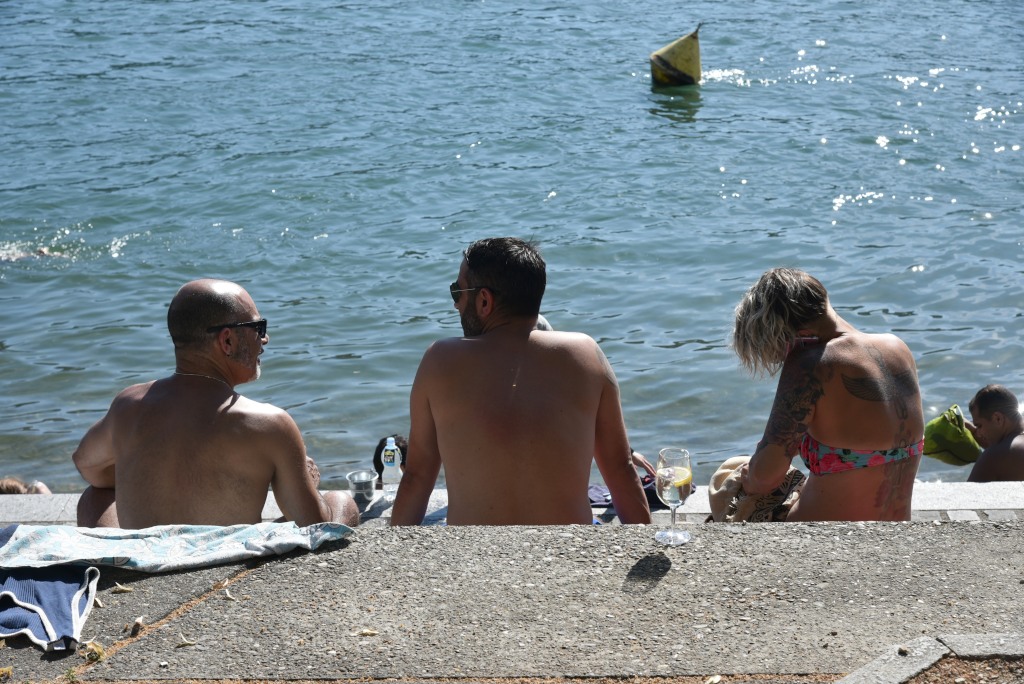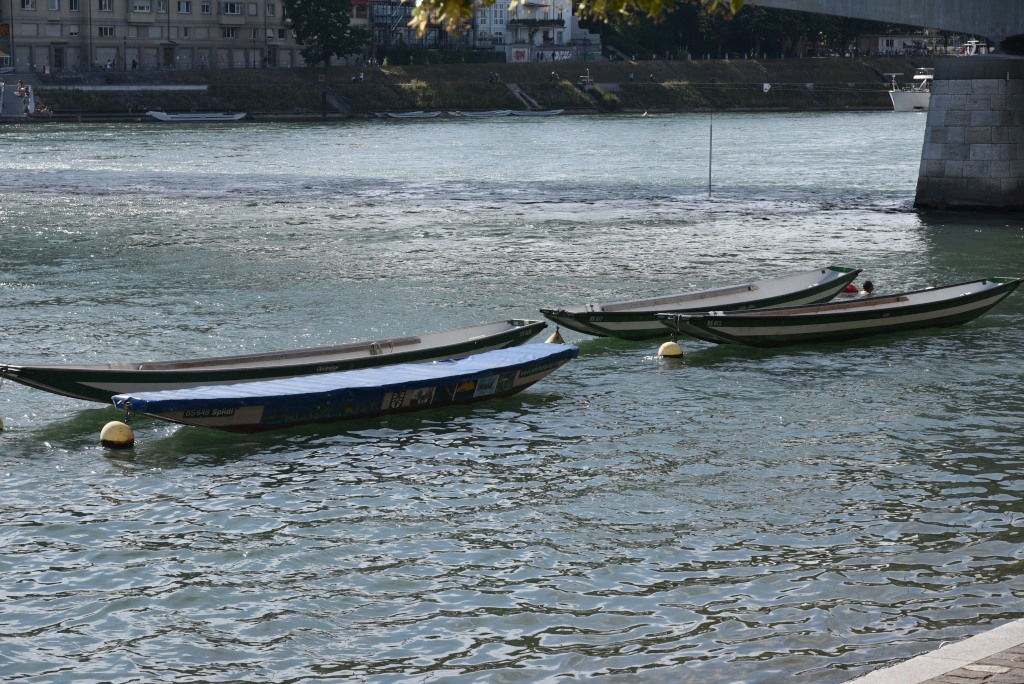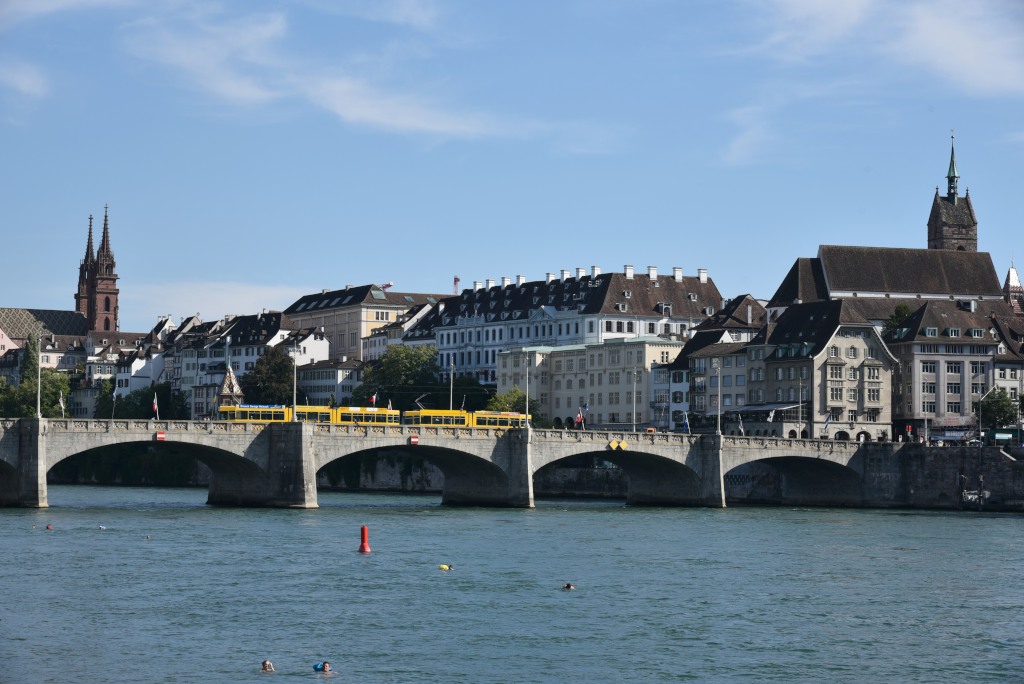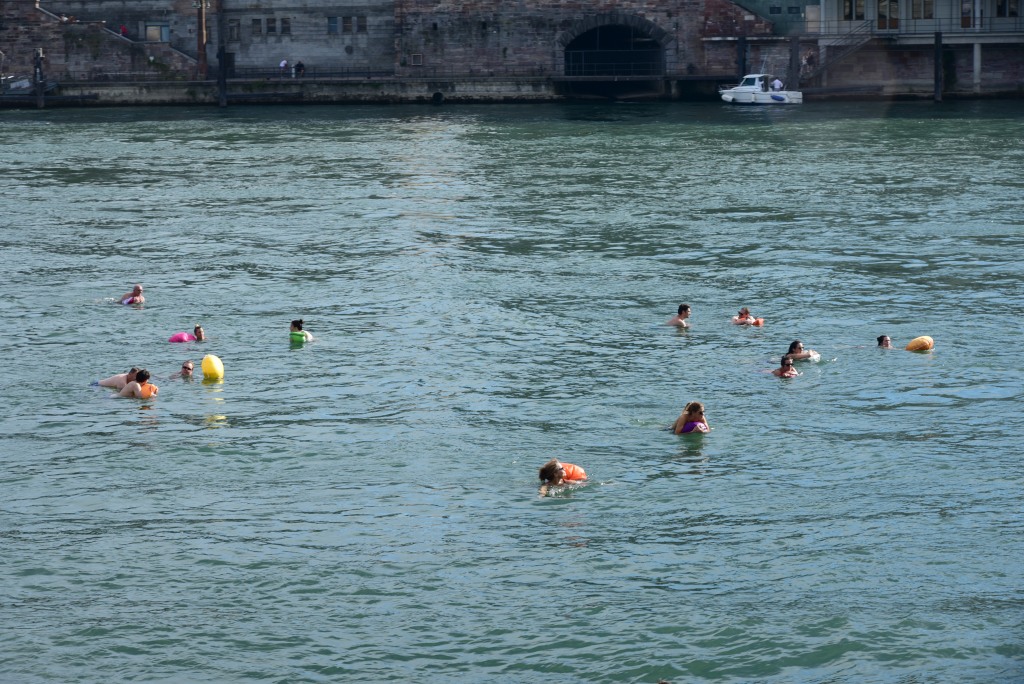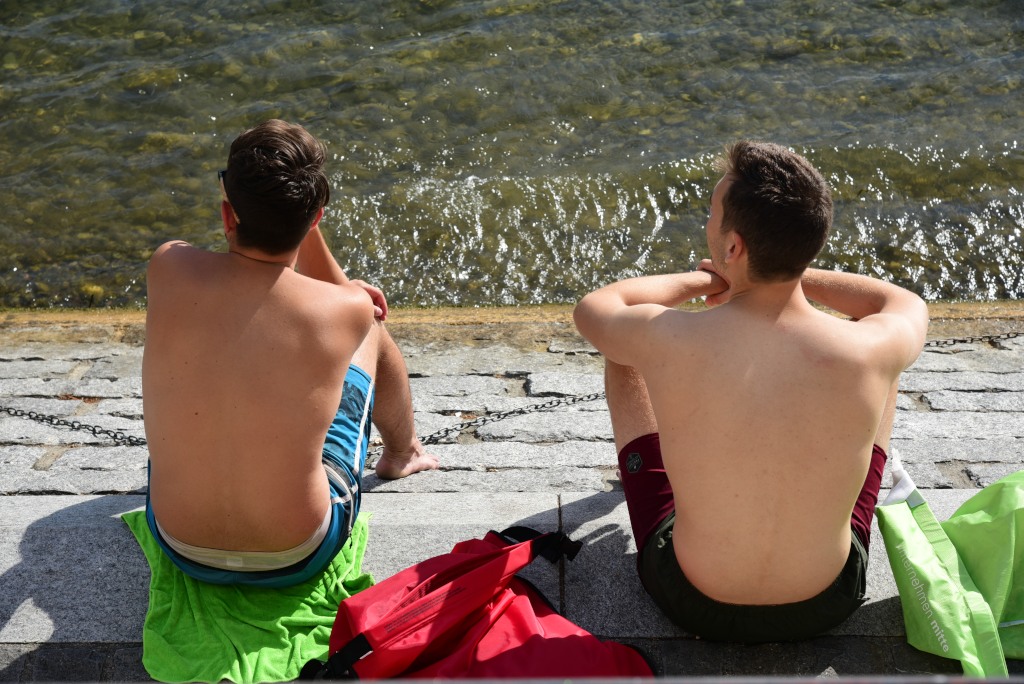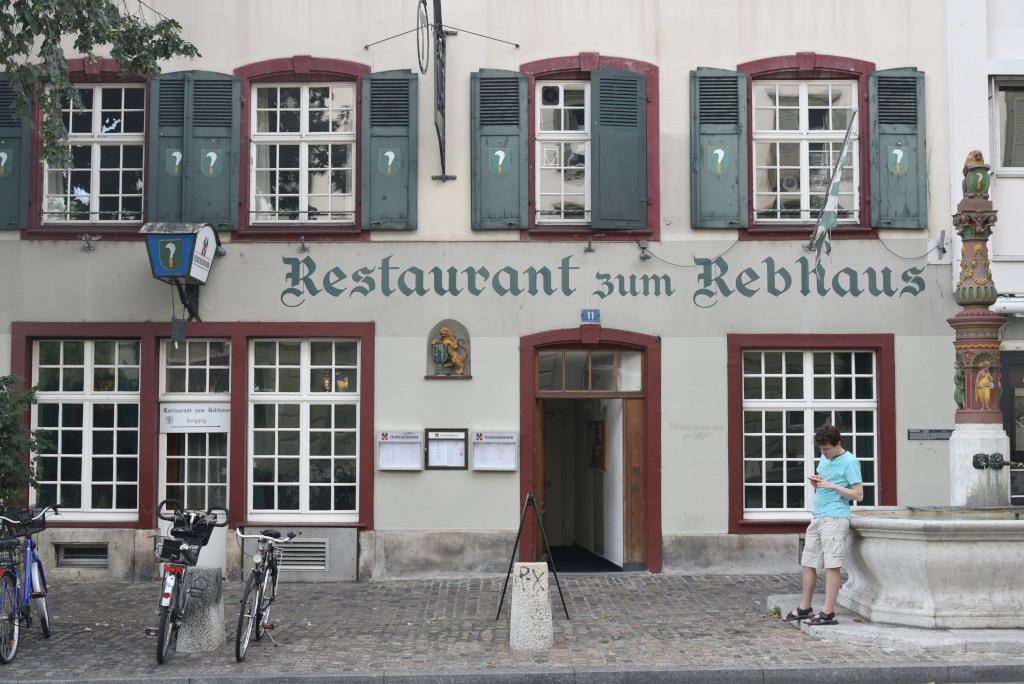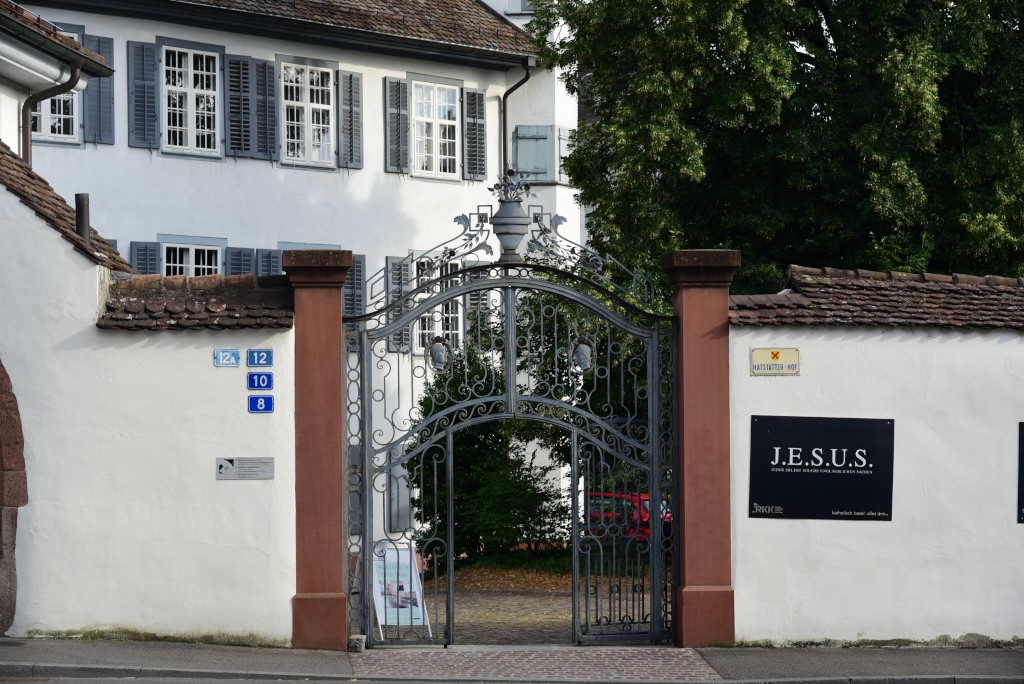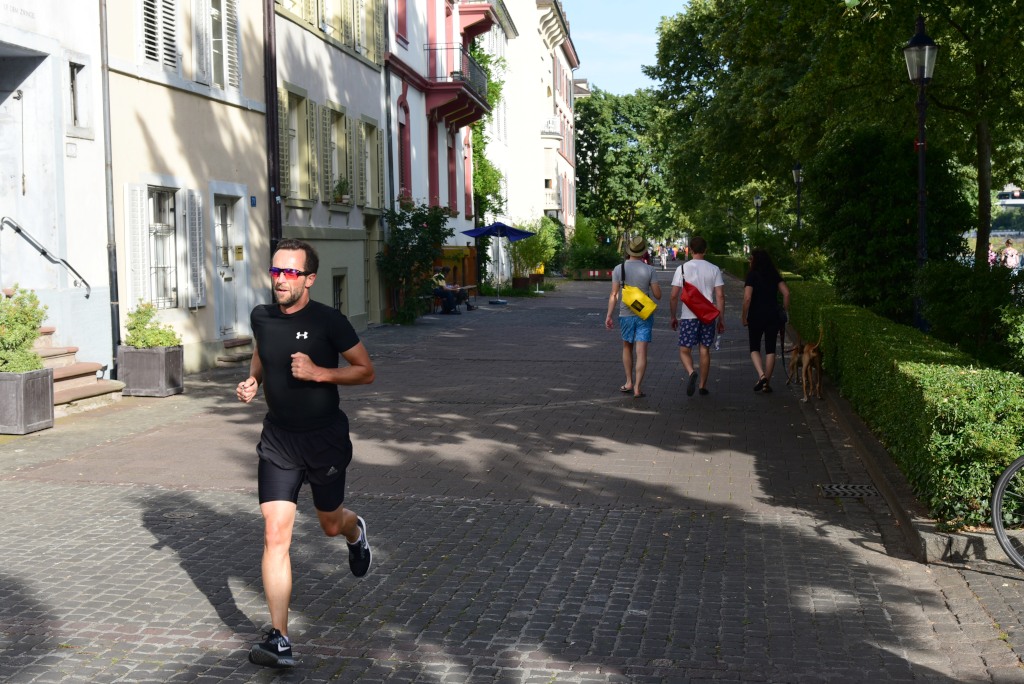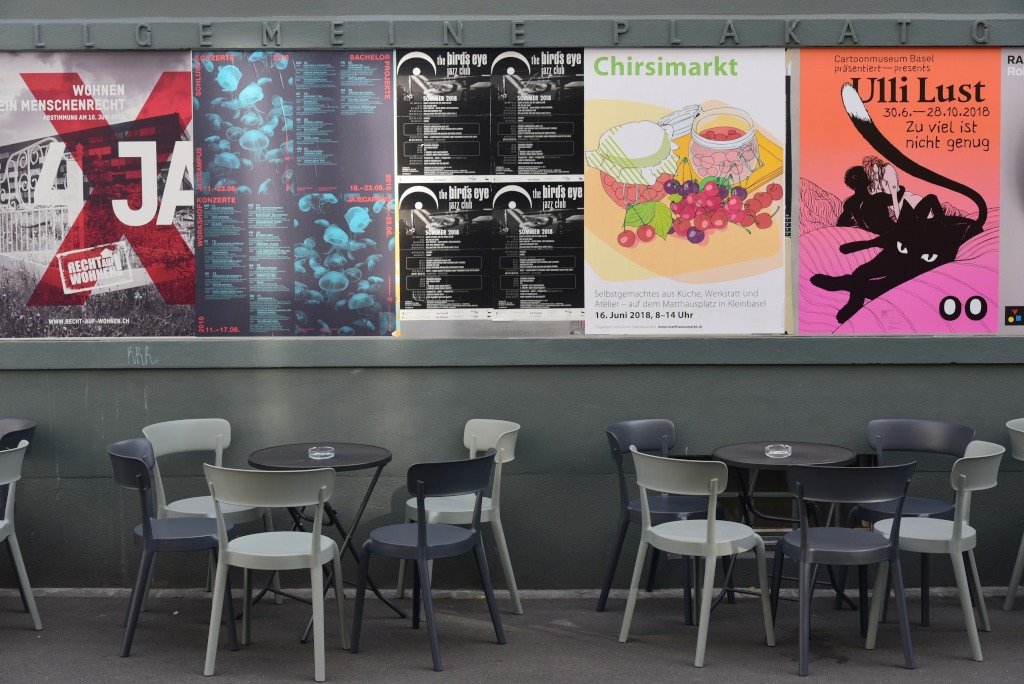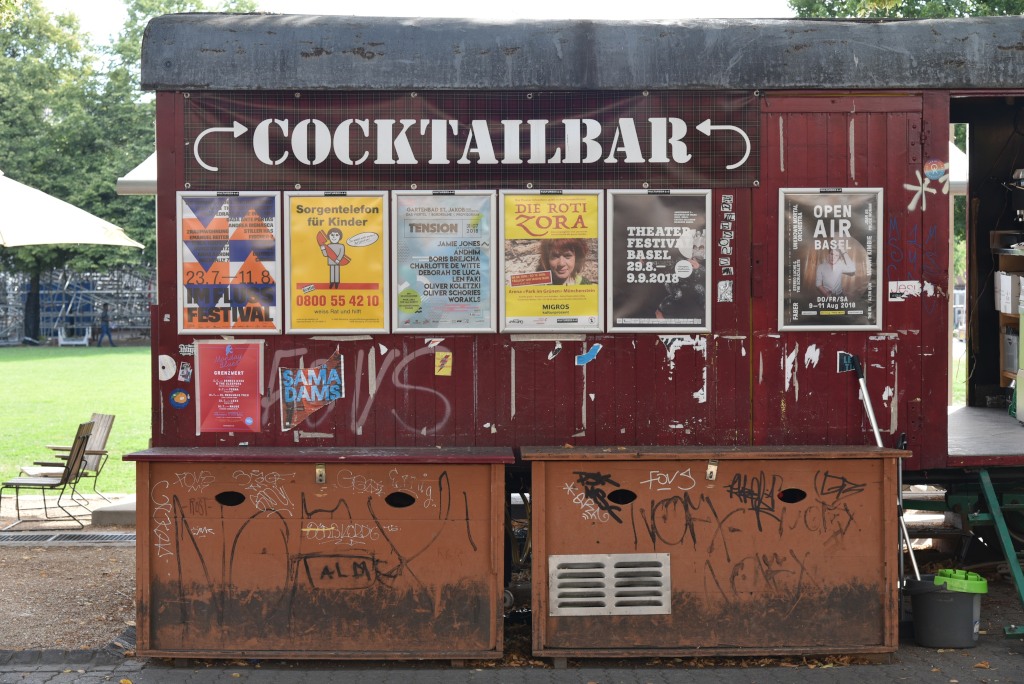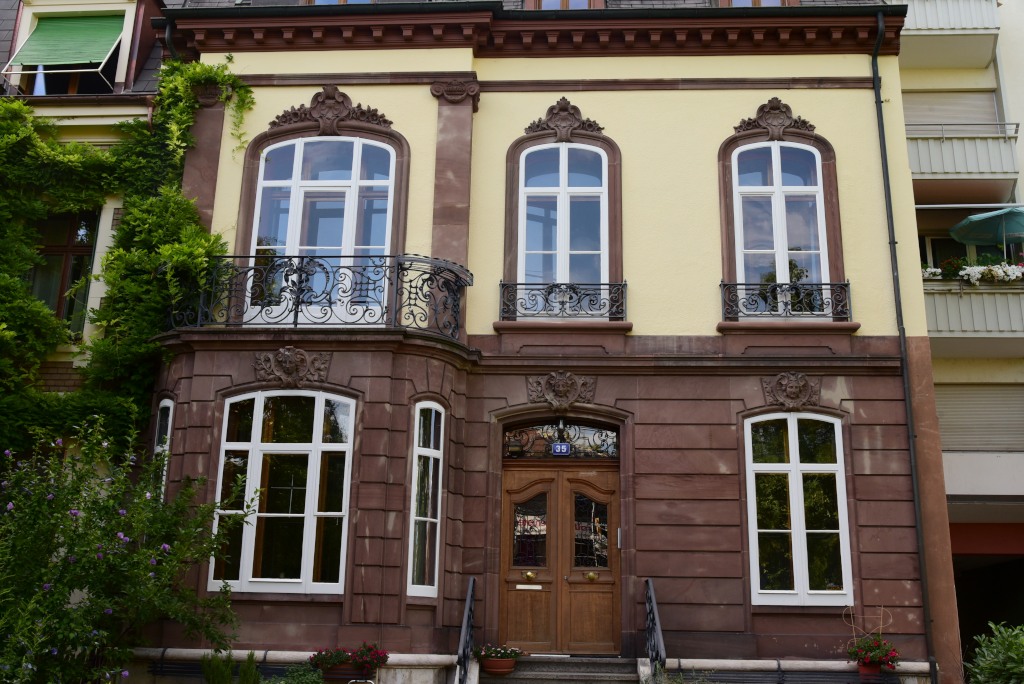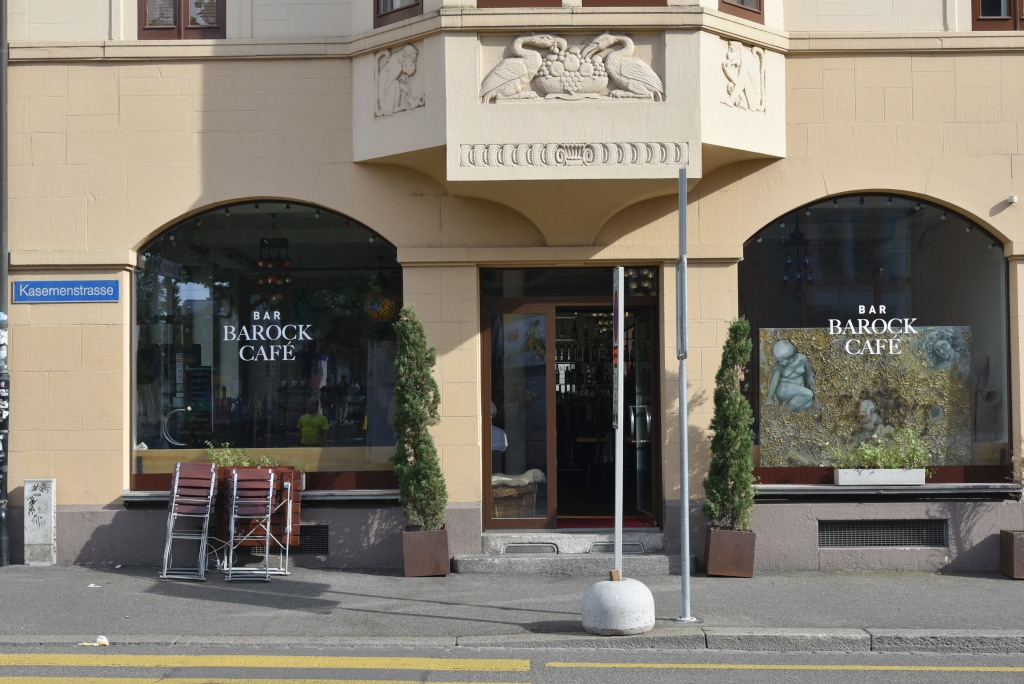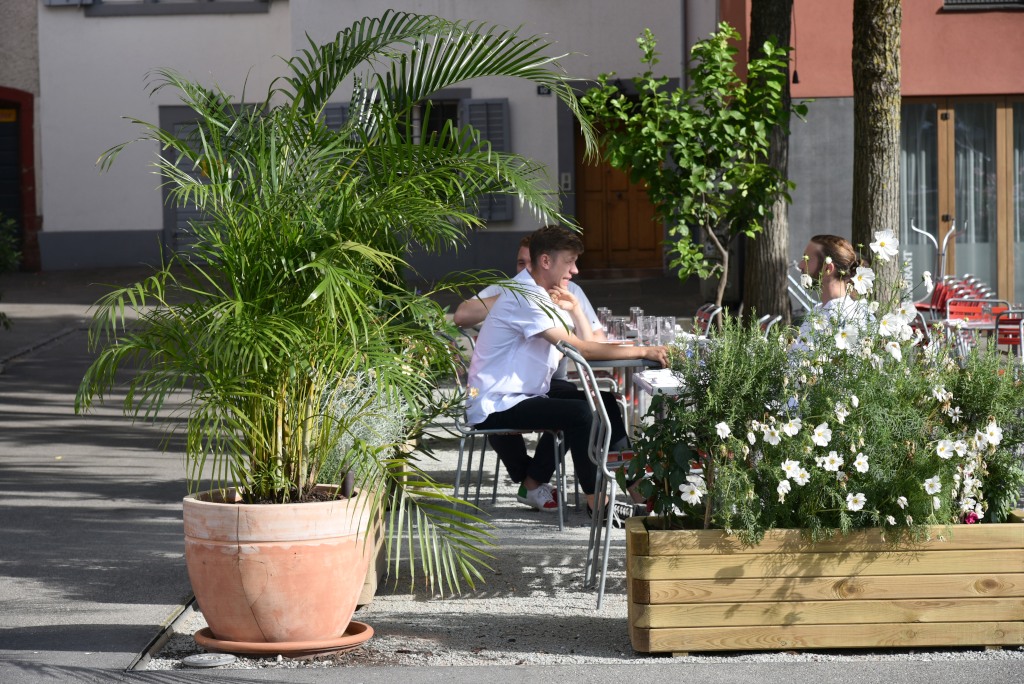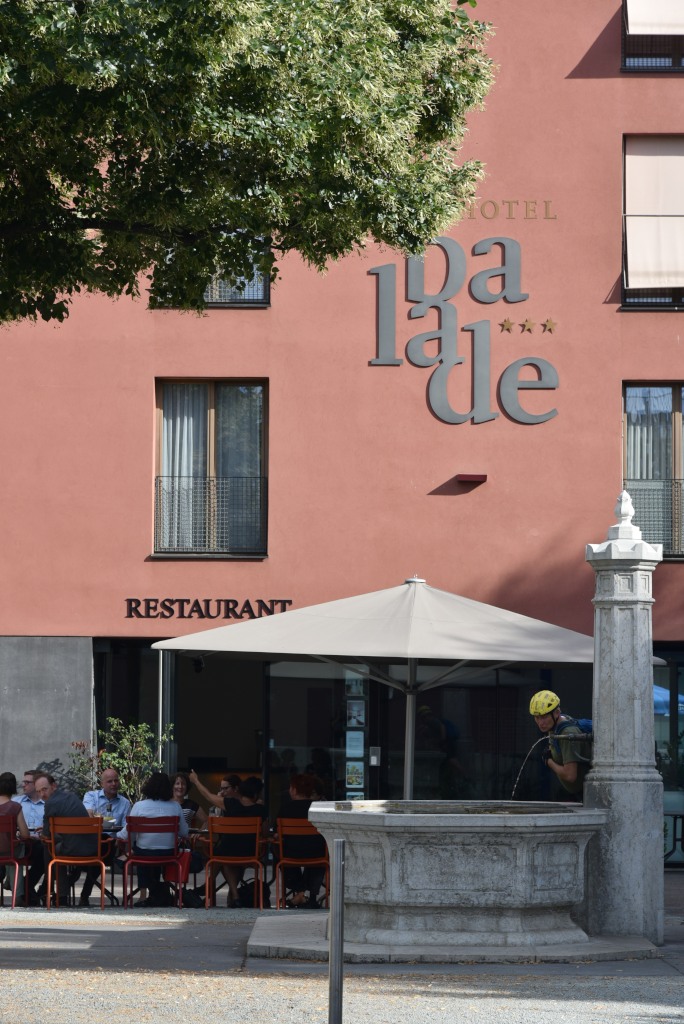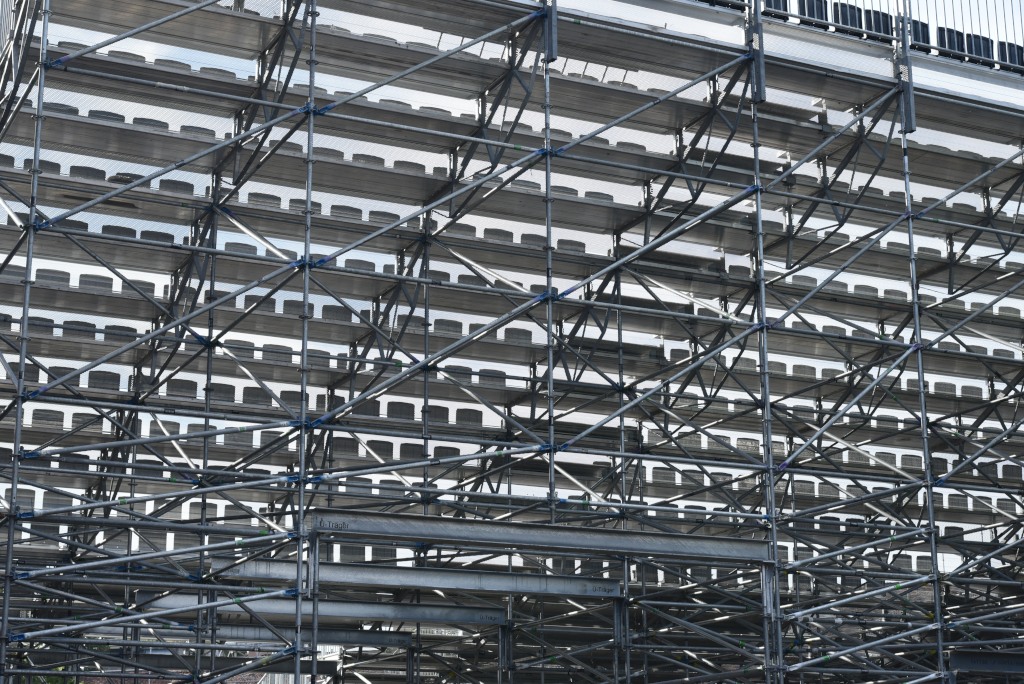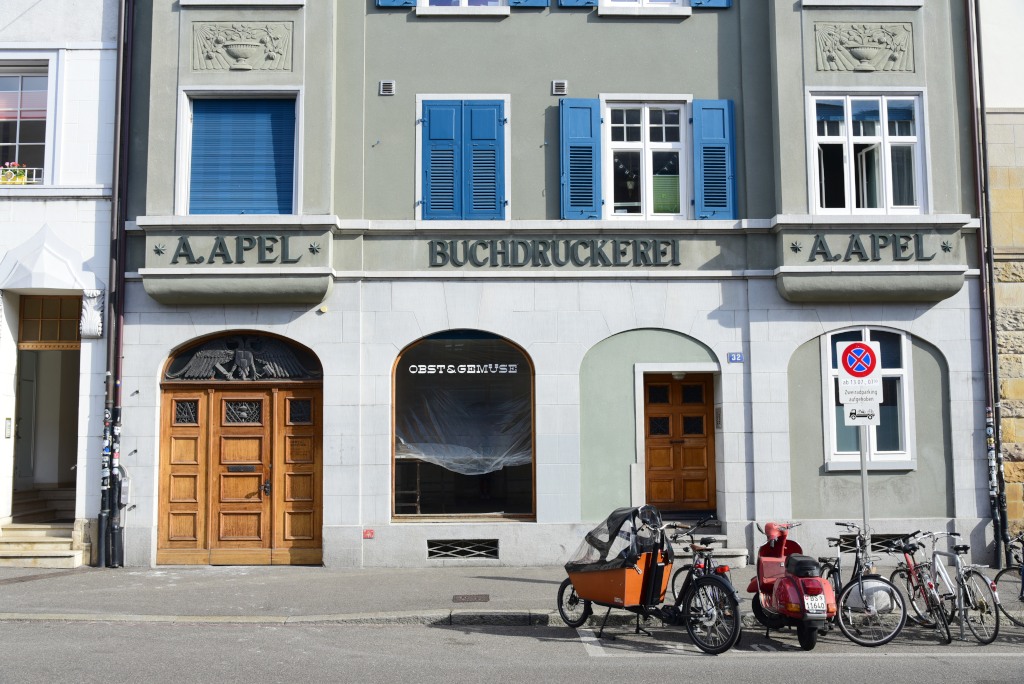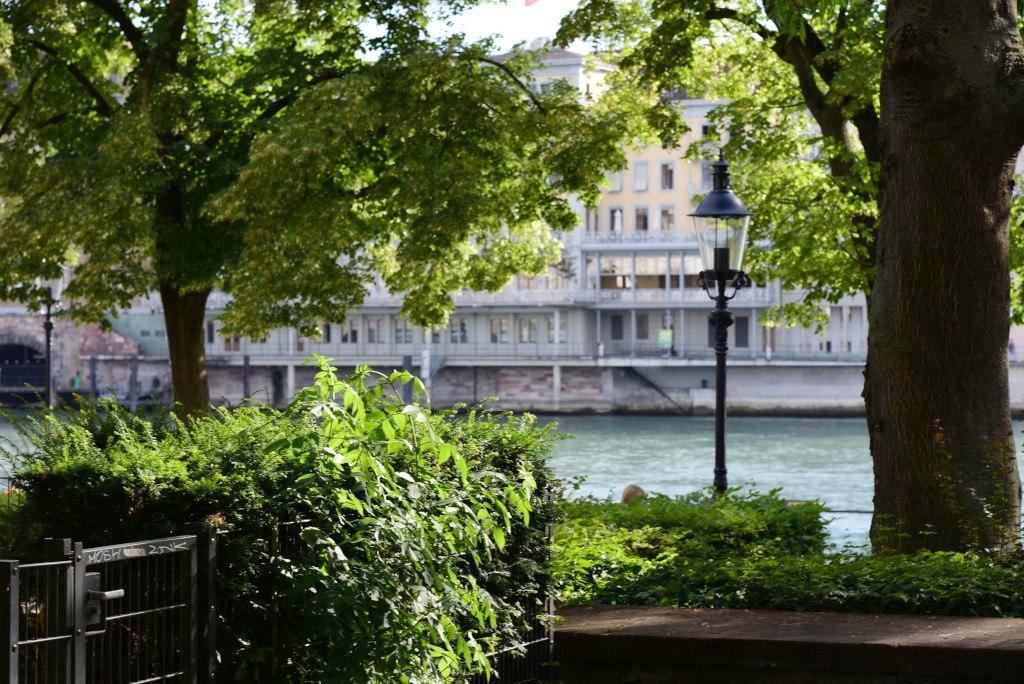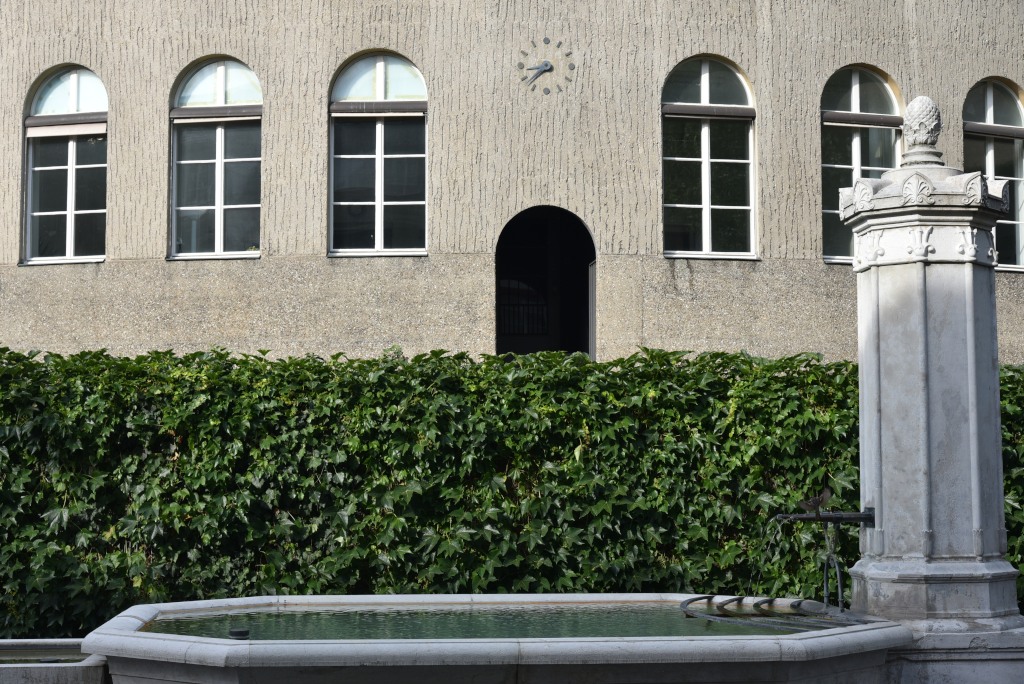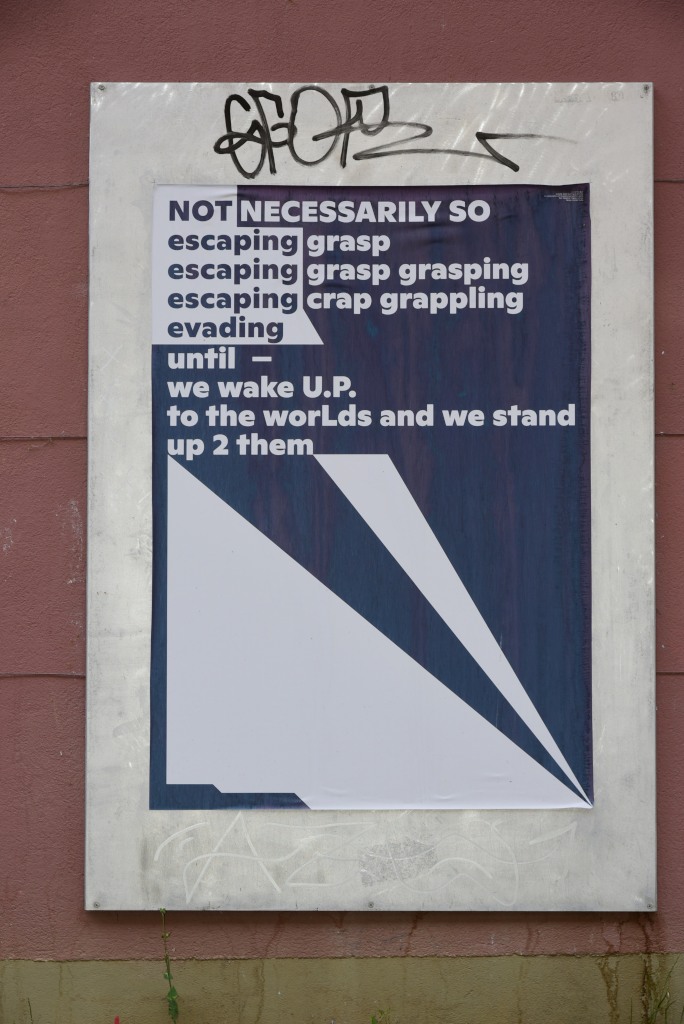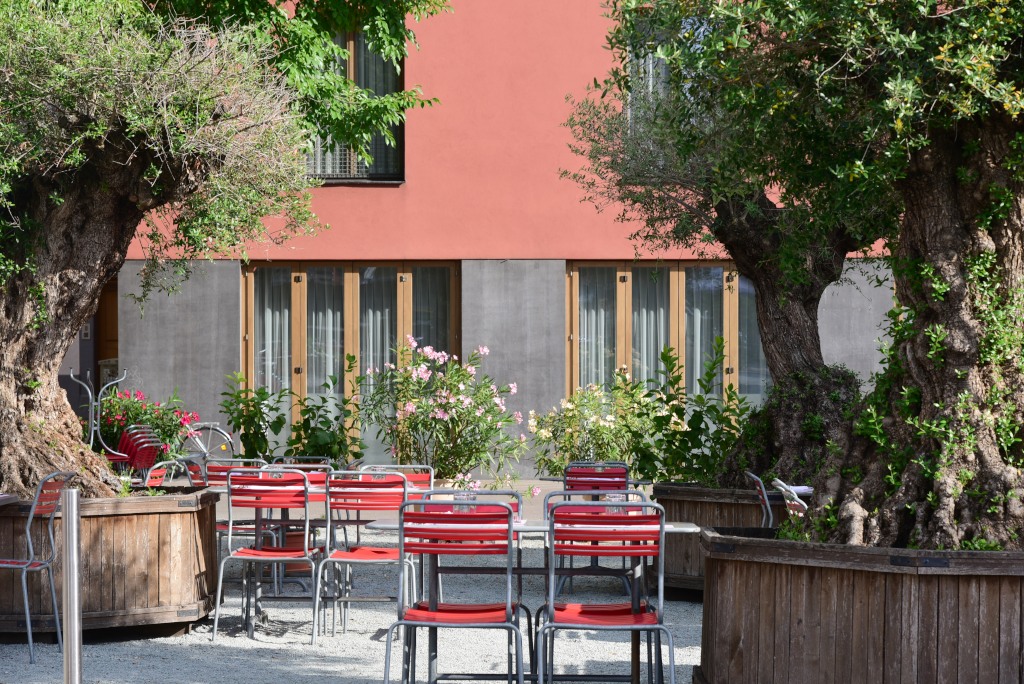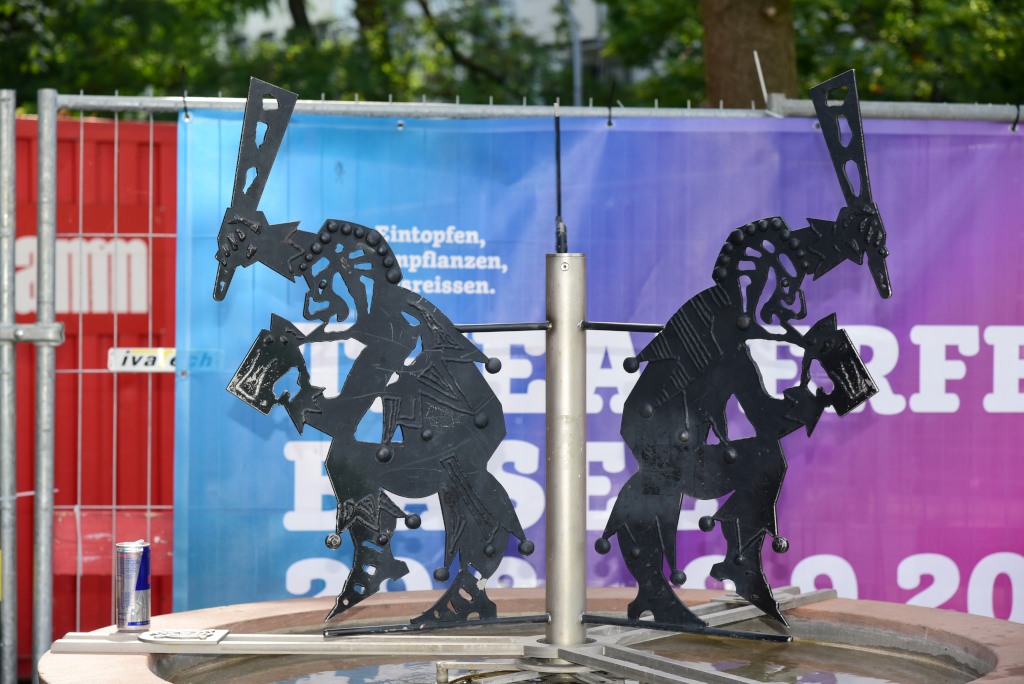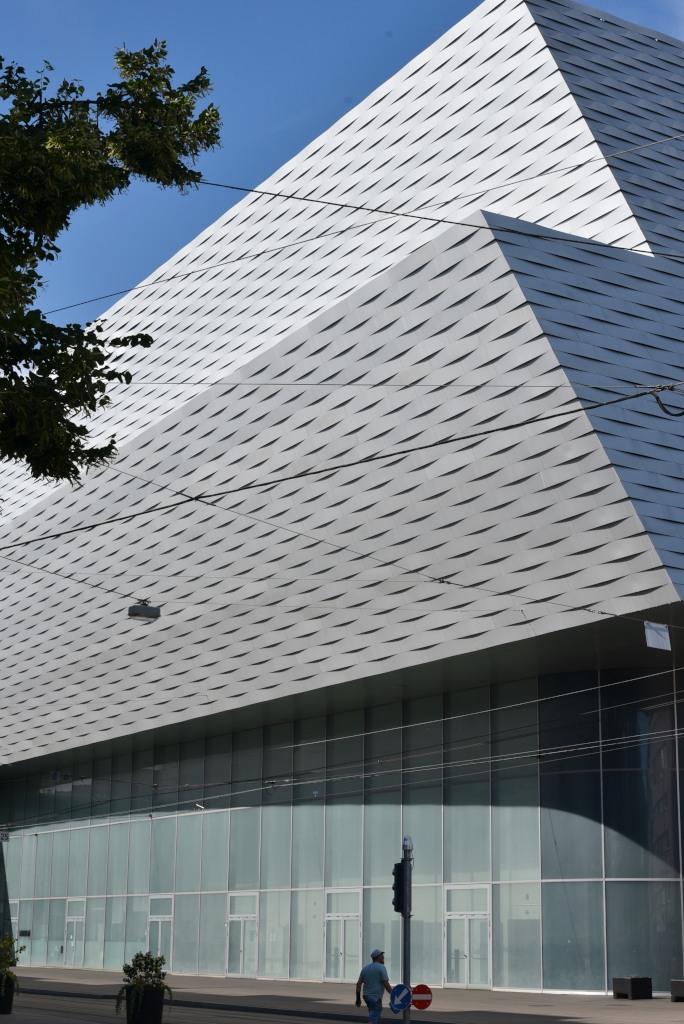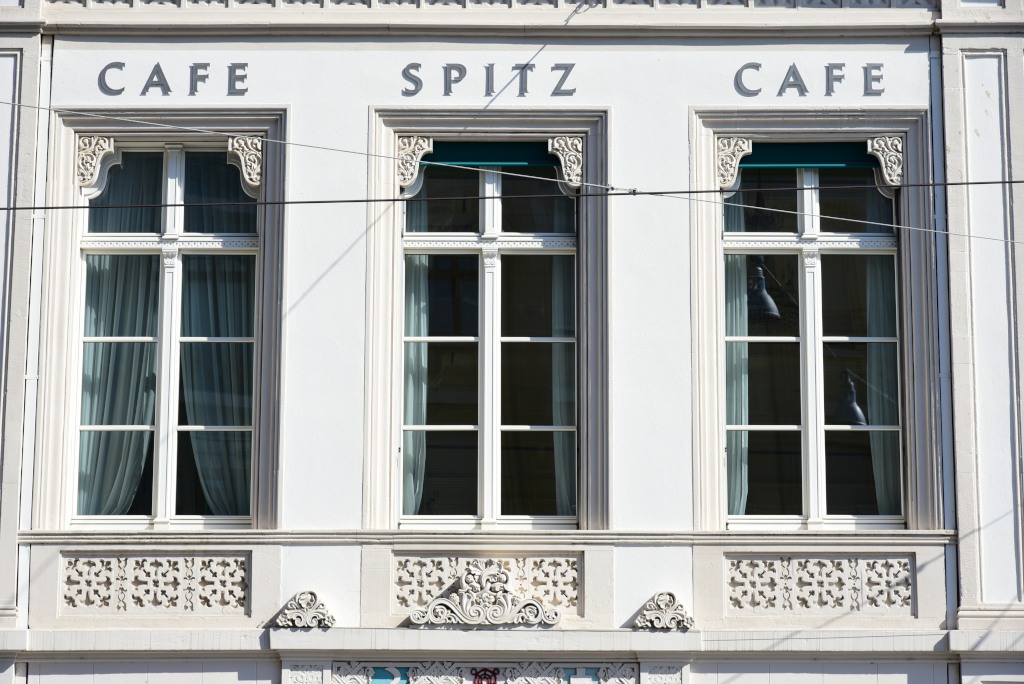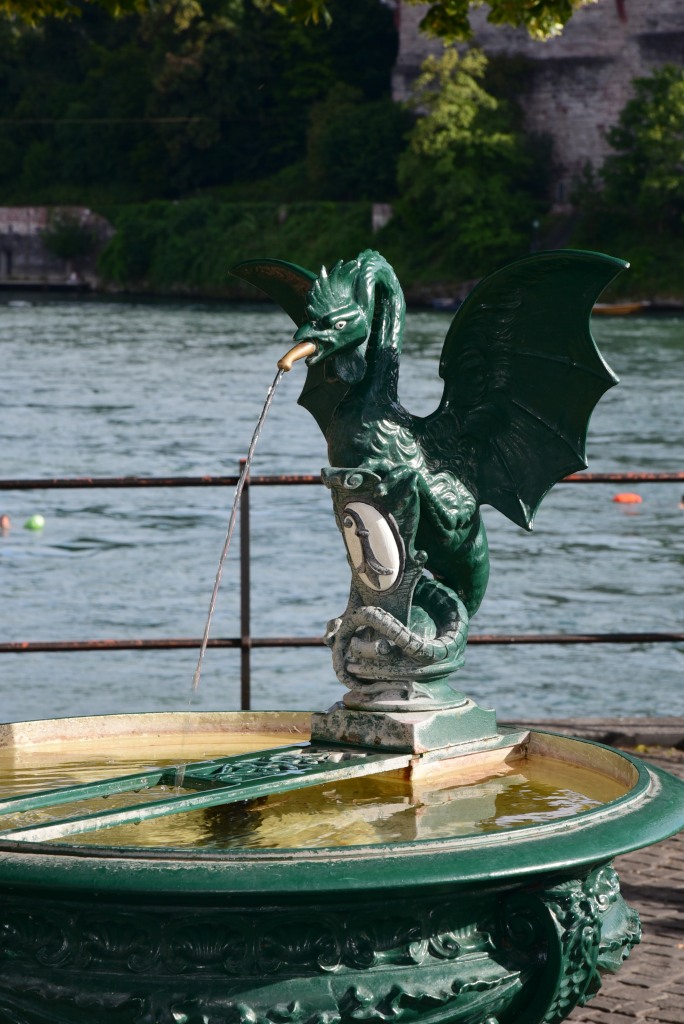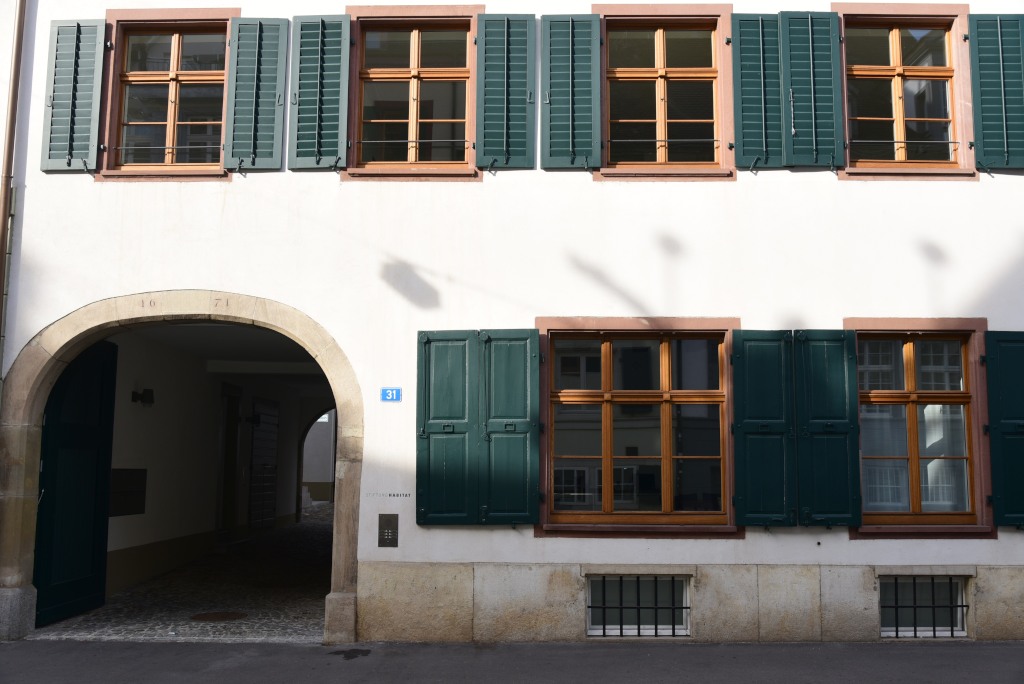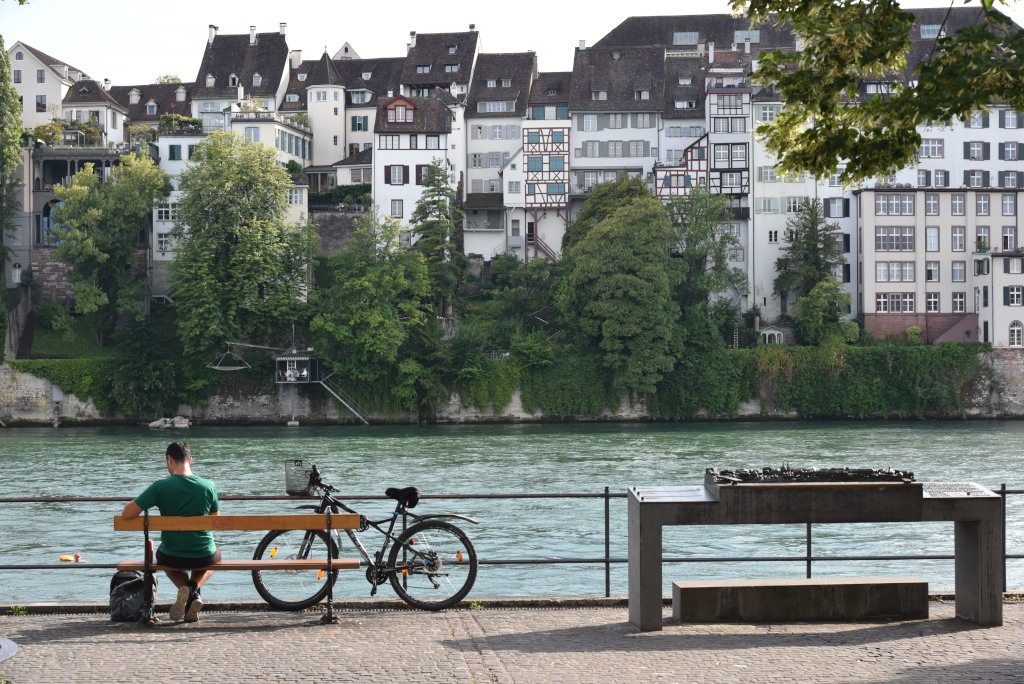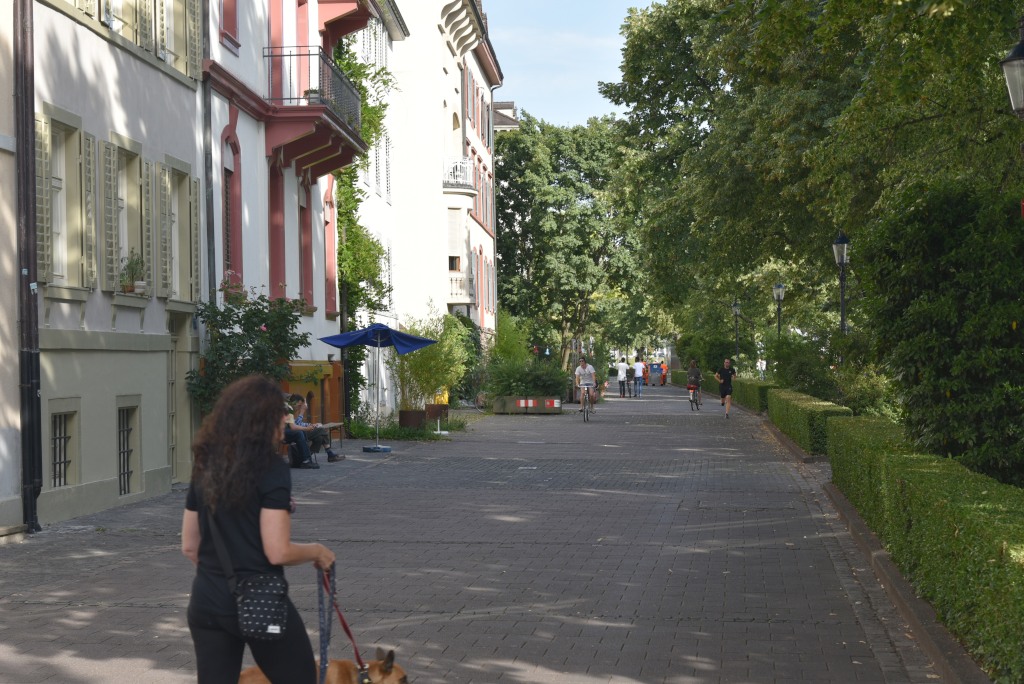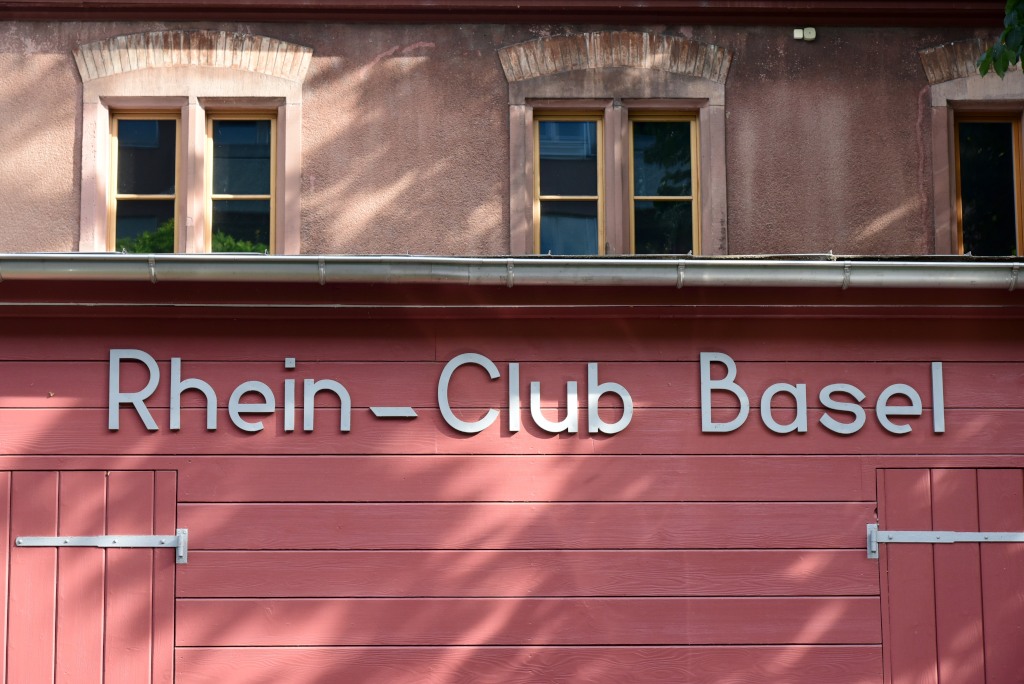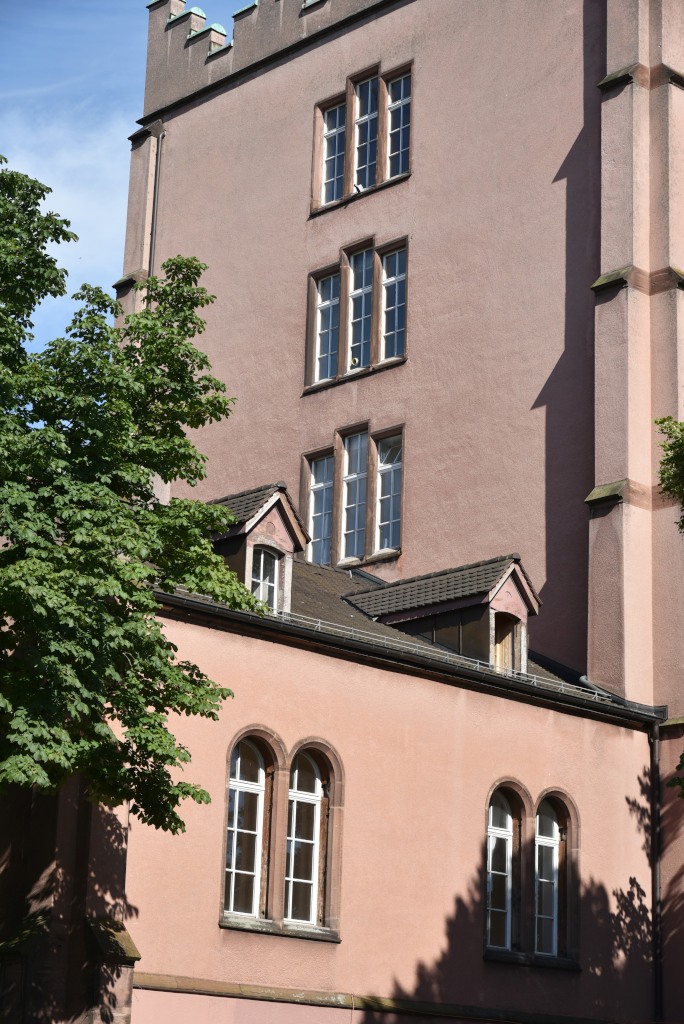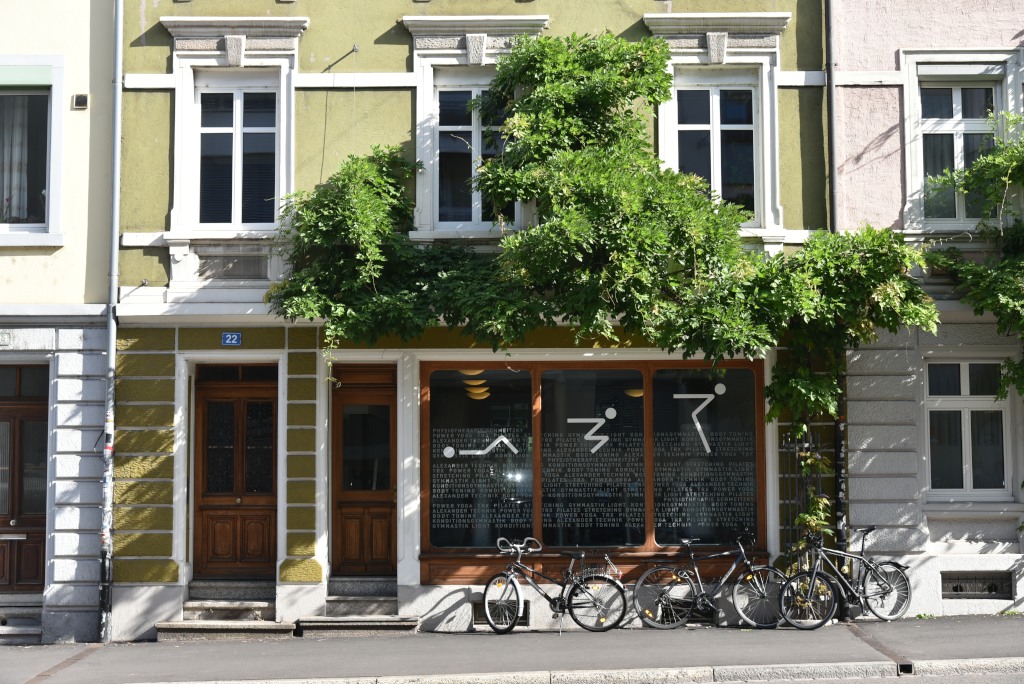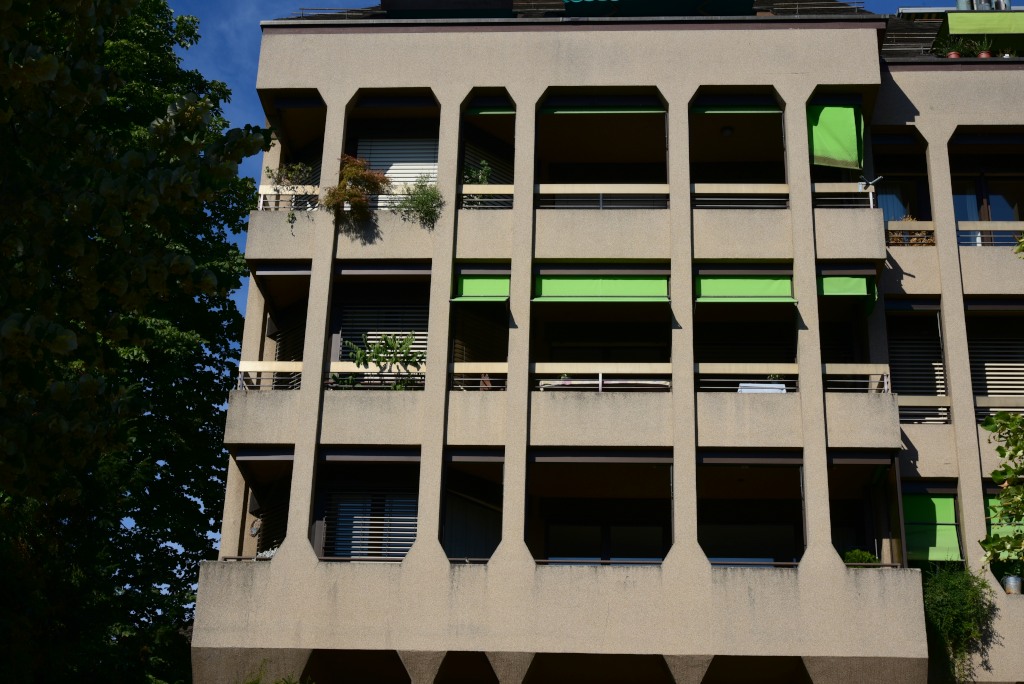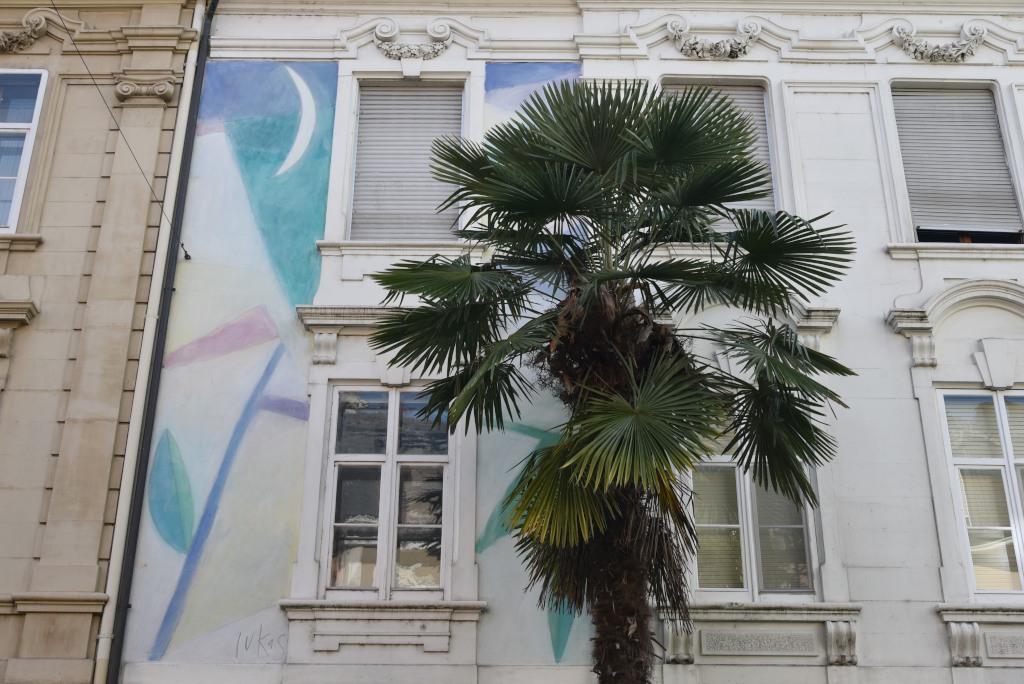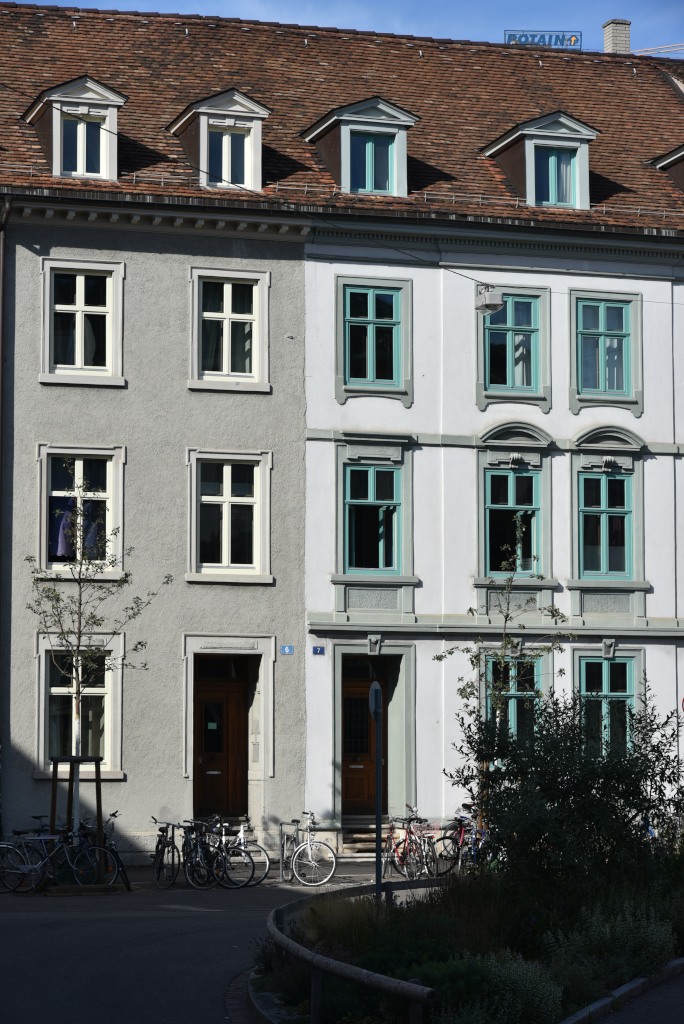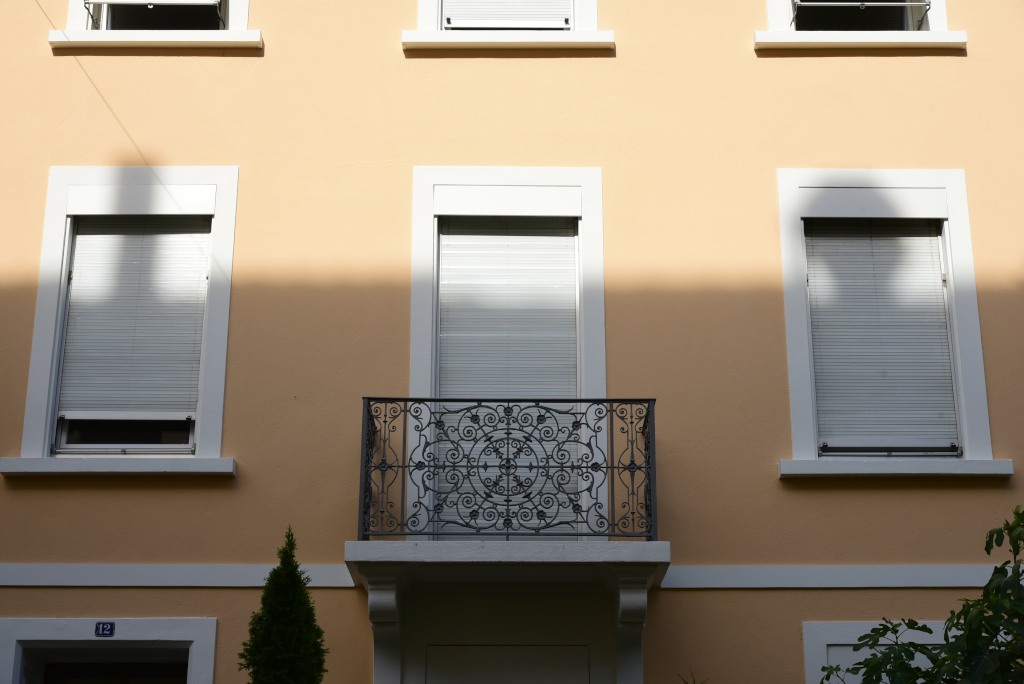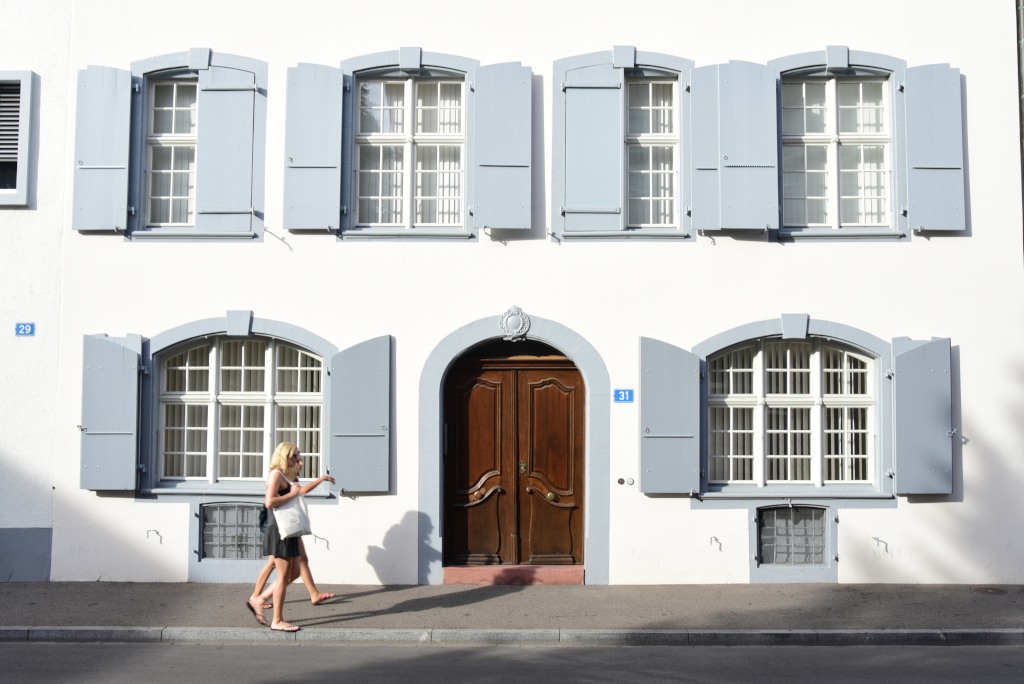July 9, 2018
Basel Badischer Bahnhof is a railway station in Basel that provides train service to Germany, whose border is just outside of the city. The name of the train station refers to the Grand Duchy of Baden State Railways, which built the station in 1855. The station is situated on Swiss soil, but operated by the German railway company Deutsche Bahn. It is the only railway station that is operated as part of the German national rail network yet not located within Germany’s state boundaries.
The Fondation Beyeler is one of the leading art galleries in the country, focusing on modern artists. The gallery complex reflects a modernist design, and at the time I attended the gallery, it featured a comprehensive exhibition of the works of Alberto Giacometti and Francis Bacon, the former austere, tortured and introspective, the latter provocative, sensual, bordering on luridly vulgar. Unfortunately, it was not possible to take photos of the interior of the exhibition space.
Art dealers Ernst Beyeler and Hilda Kunz created the Beyeler Foundation in 1982 and commissioned Renzo Piano to design a museum to house their private collection. The museum’s doors opened in 1997, and counts an annual attendance of roughly 300,000. Besides revenues from the generous admission prices, the museum is funded by annual grants from the cantons of Basel City and Basel County, the commune of Riehen, as well as Bayer AG, Novartis and Swiss bank UBS.
The Fondation Beyeler is set in the bucolic and elegant suburban Basel enclave of Riehen, host to beautifully embellished and painted and immaculately finished stone country houses and villas.
One of the key events in Basel in the summer is the Rheinschwimmen, where swimmers enter the Rhine river further upstream in the river clutching their belongings in a watertight bag, then climb out of the river somewhere downstream after a refreshing float on the river through the centre of town, hopefully not losing control and being carried away by the river.
The term Rheinschwimmen has a double meaning, inasmuch as it refers to the act of swimming in the Rhine river as well as swimming into (whatever it may be). The Rheinschwimmen is a very social experience, as the swimmers as well as the general public congregate in the cafes lining the river banks to eat and drink, or for that matter any available space next to the river where the sun may be shining.
Until the Middle Ages, swimming in the Rhine was socially frowned upon, never mind the fact that the river served primarily as wastewater of urban households as well as the execution of death sentences by drowning or flooding at the Käppelijoch. Before the construction of dams and bank straightening, the higher flow velocity made the Rhine a dangerous stream. After the iconoclasm of 1529, swimming in the Rhine was forbidden by the strict regime of the guilds and remained until the 18th century.
With the establishment of the Rhine-based chemical companies (Sandoz, Roche), the river was additionally burdened by industrial wastewater, and swimming in the Rhine was for a long time limited to the Rheinbadhäuser. The water quality improved significantly once a sewage treatment plant was built and swimming in the open river became more popular. Since the turn of the millennium, the Rhine swimming has become the main leisure activity in the city in the summer months, particularly with the improvement of amenities and offering of gastronomic attractions along the river banks.
More on the early history of the city of Basel. Traces of a settlement at the Rhine in the area of Basel have been founded dating to the early La Tène period in the 5th century B.C. In the 2nd century B.C., there was a village of the Raurici at the site of Basel-Gasfabrik, to the northwest of the Old City, likely identical with the town of Arialbinnum mentioned on the Tabula Peutingeriana. The unfortified settlement was abandoned in the 1st century BC in favour of an oppidum on the site of Basel Minster, probably in reaction to the Roman invasion of Gaul.
In Roman Gaul, Augusta Raurica was established some 20 km from Basel as the regional administrative centre, while a castra (fortified camp) was built on the site of the Celtic oppidum, around which the city of Basel eventually expanded. In A.D. 83, Basel was incorporated into the Roman province of Germania Superior. Roman control over the area deteriorated in the 3rd century A.D., and Basel became an outpost of the Provincia Maxima Sequanorum formed by Diocletian.
The Germanic confederation of the Alemanni attempted to cross the Rhine several times in the 4th century, but were repelled. However, in the great invasion of A.D. 406, the Alemanni appear to have crossed the Rhine river a final time, conquering and then settling what is today Alsace and a large part of the Swiss Plateau. From that time, Basel has been an Alemannic settlement.
The Duchy of Alemannia fell under Frankish rule in the 6th century A.D., and by the 7th century, the former bishopric of Augusta Raurica was re-established as the Bishopric of Basel. Under bishop Haito, the first cathedral was built on the site of the Roman castle, later replaced by a Romanesque structure consecrated in 1019. At the partition of the Carolingian Empire, Basel was first given to West Francia, but it passed to East Francia with the treaty of Meerssen of 870.
(Narrative excerpted from Wikipedia)
